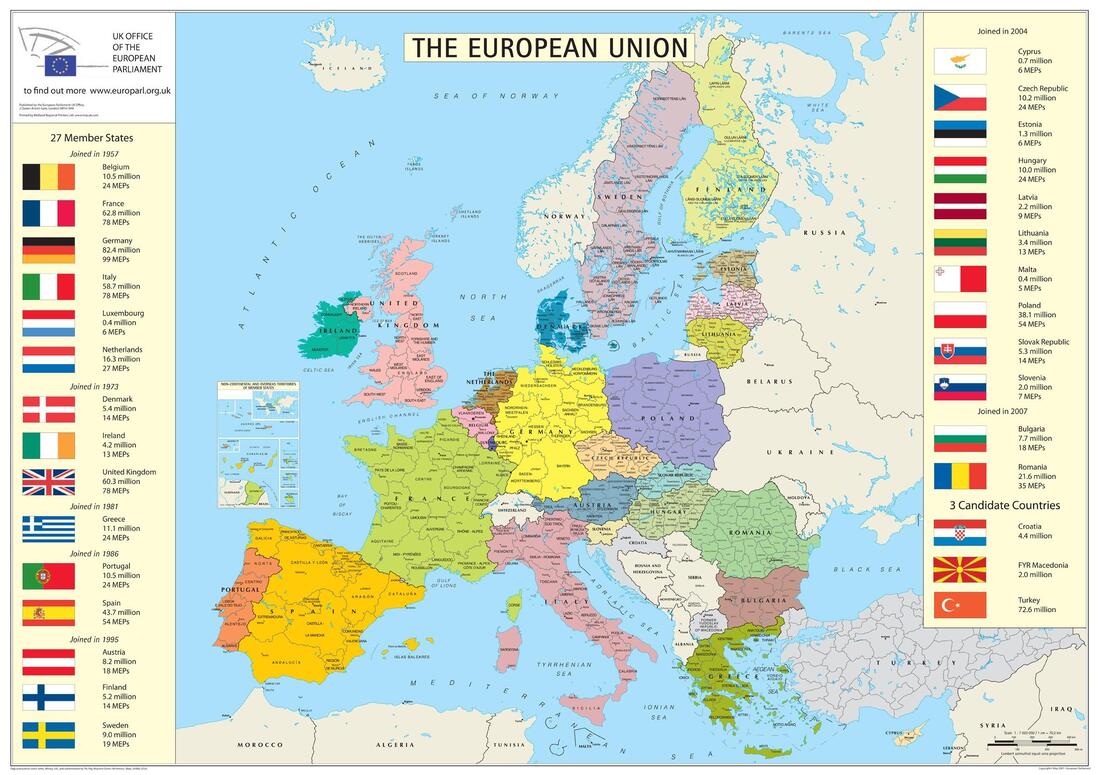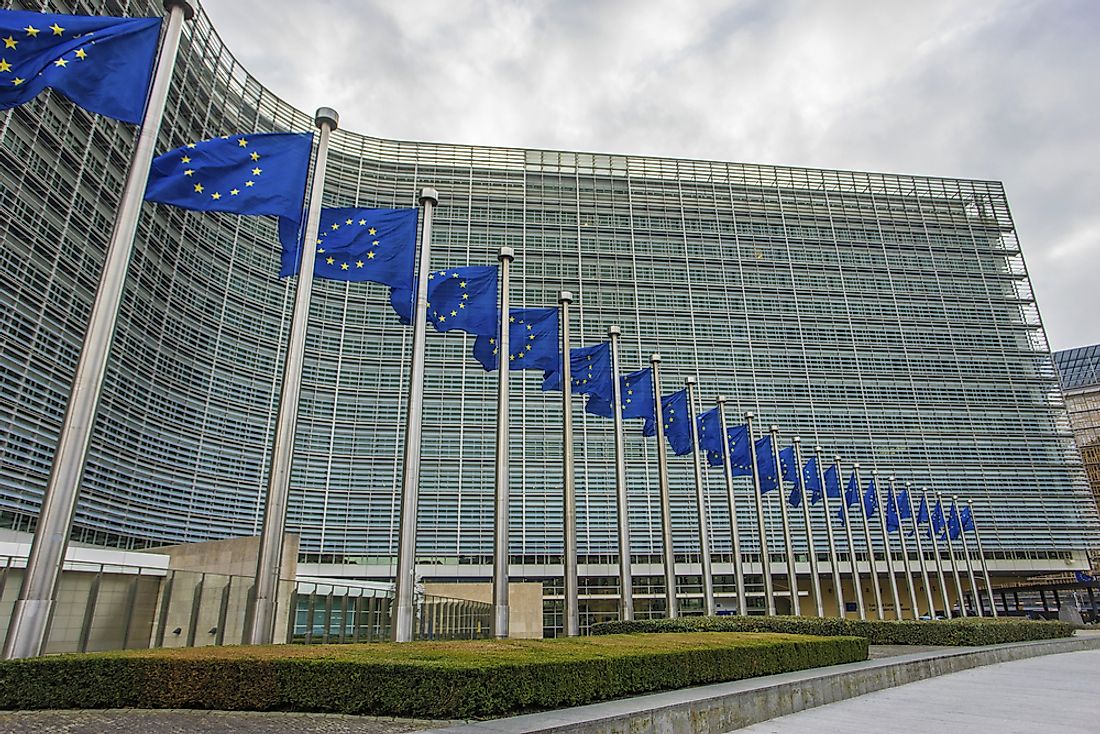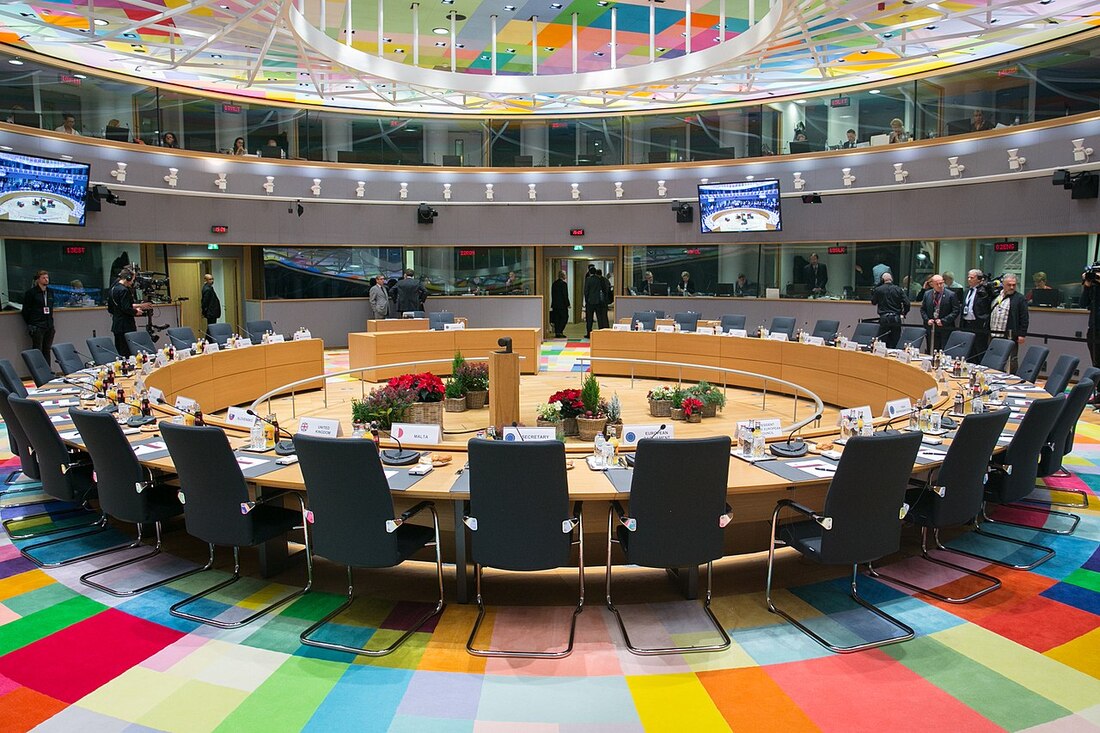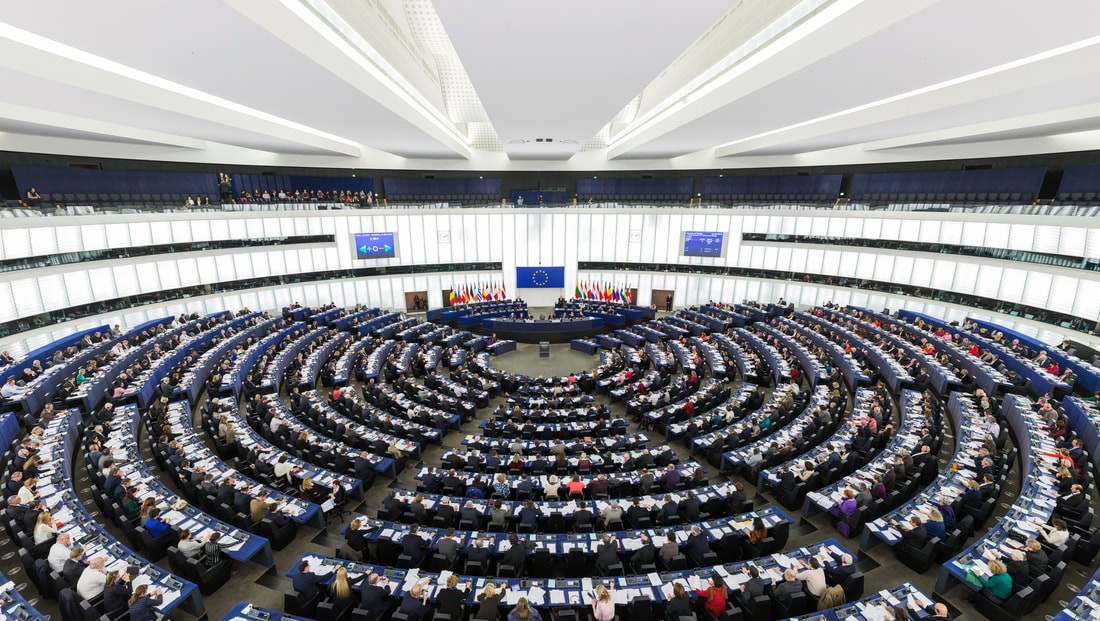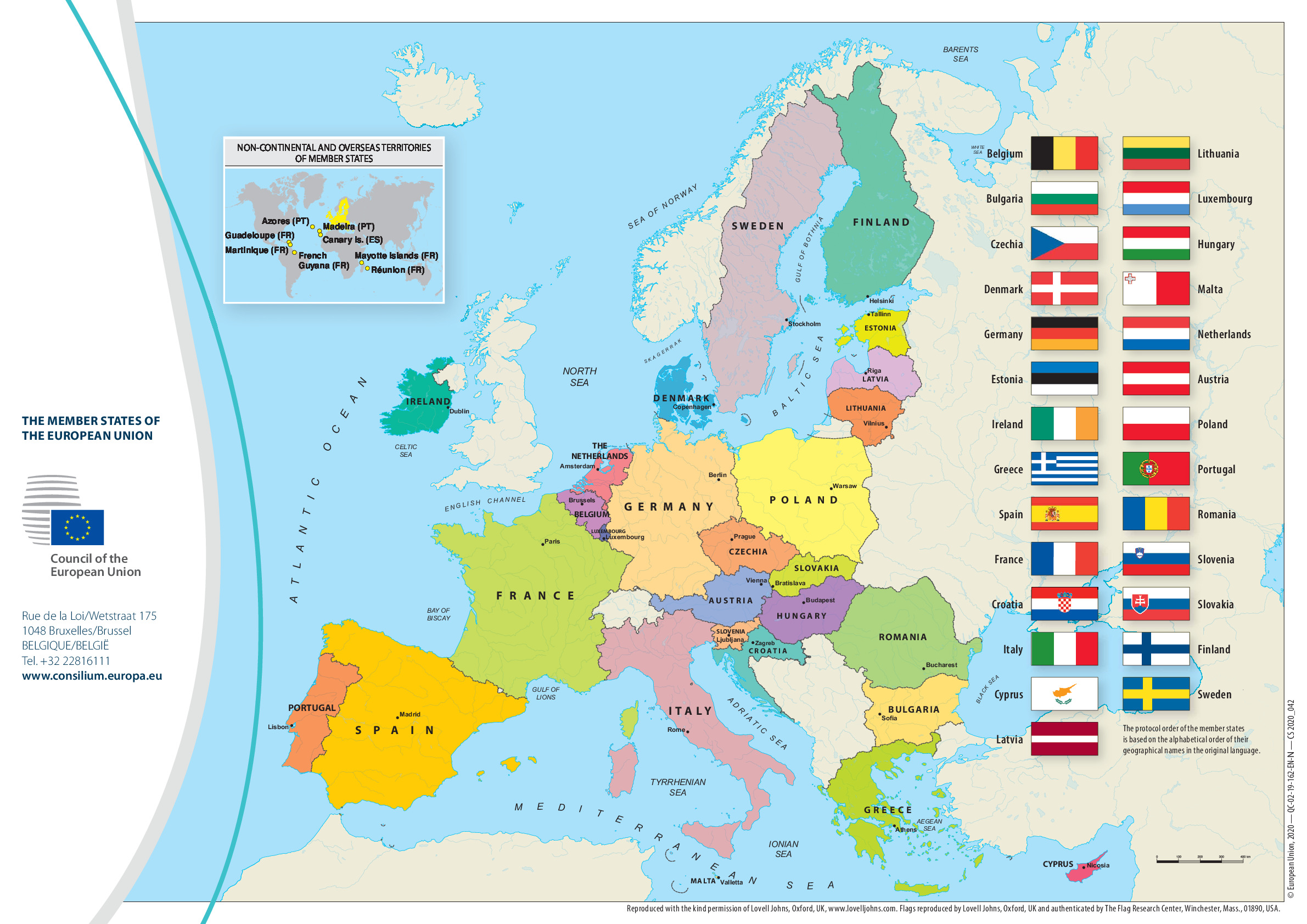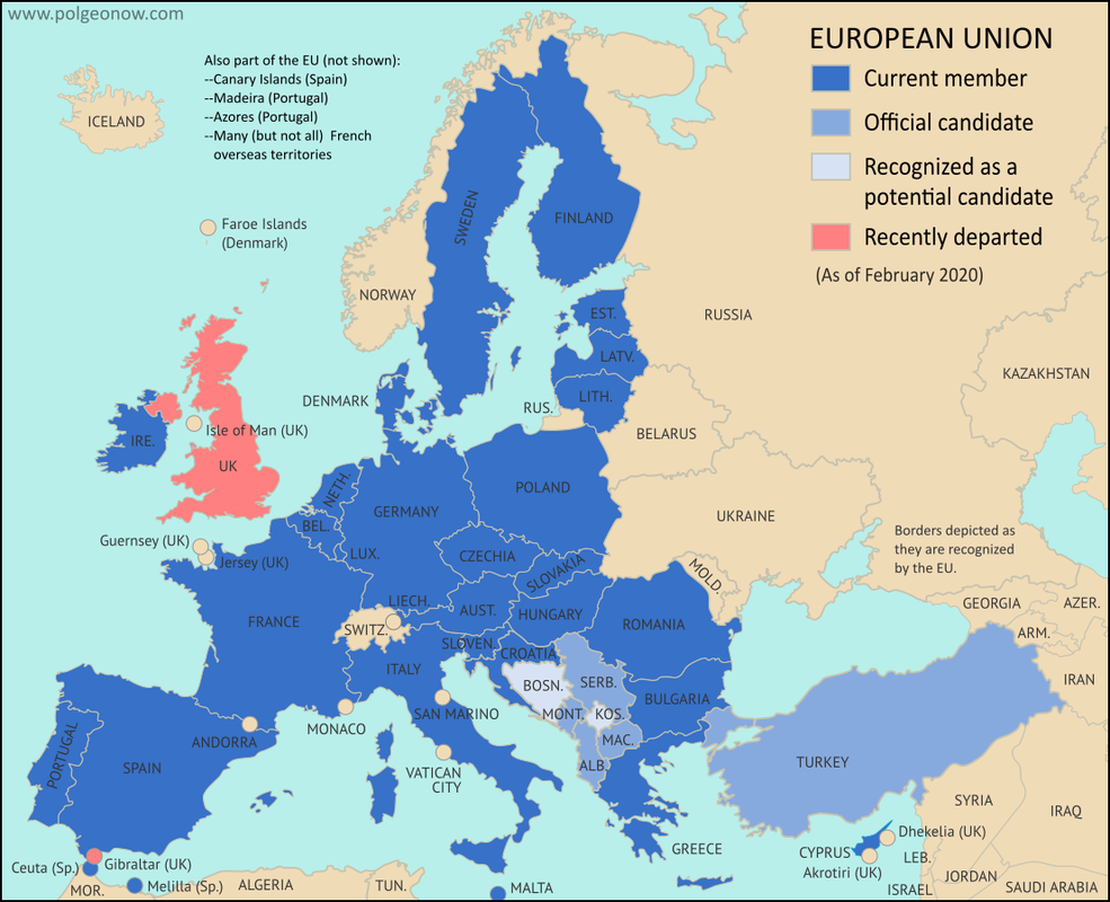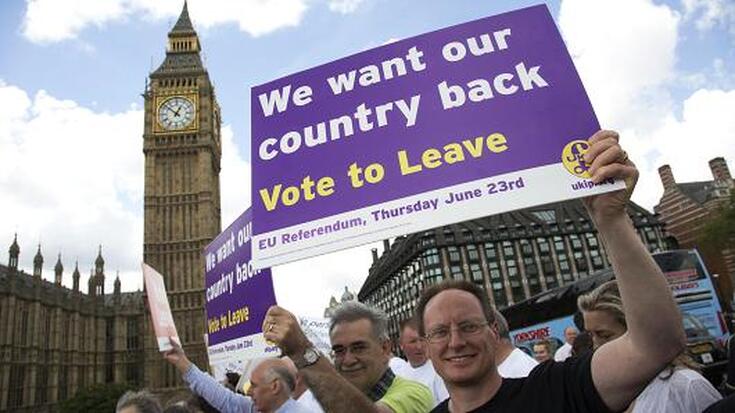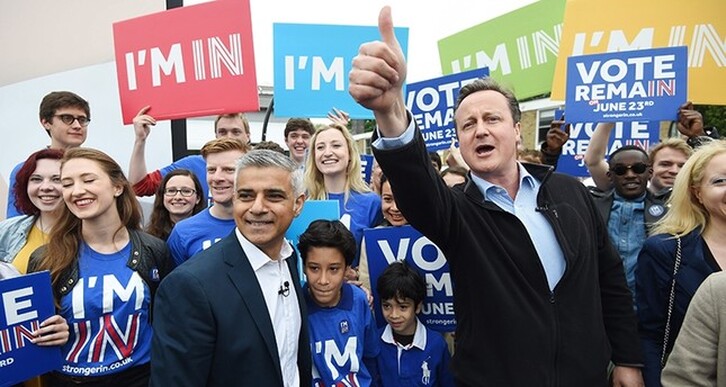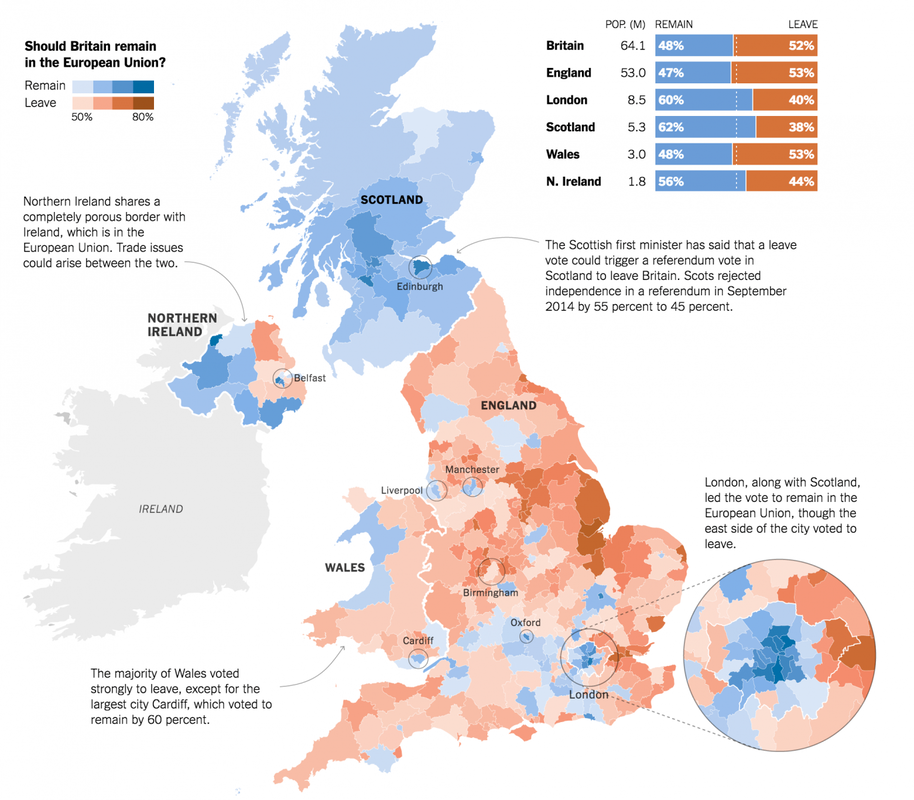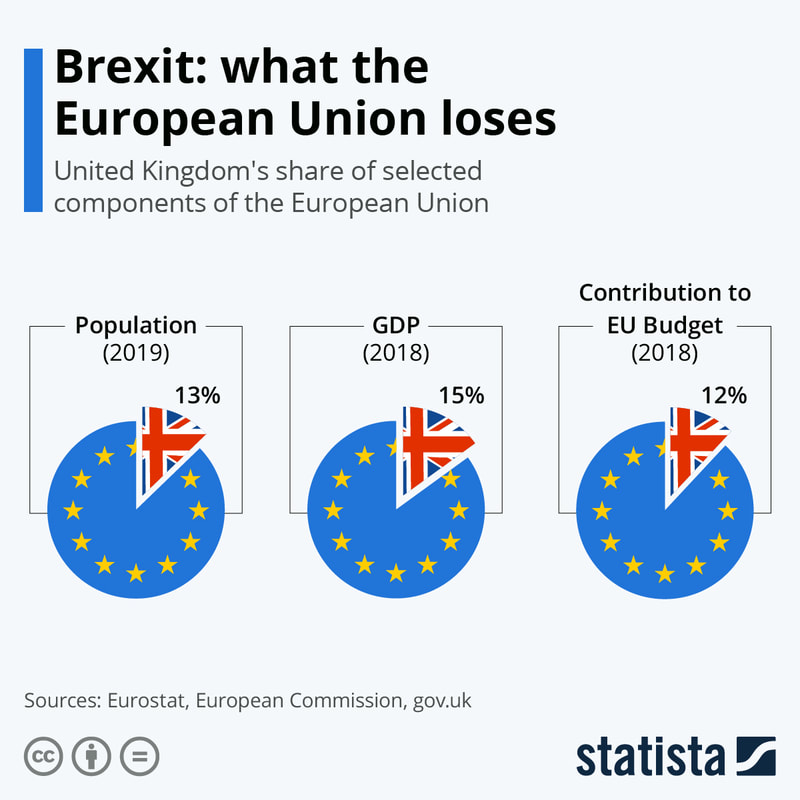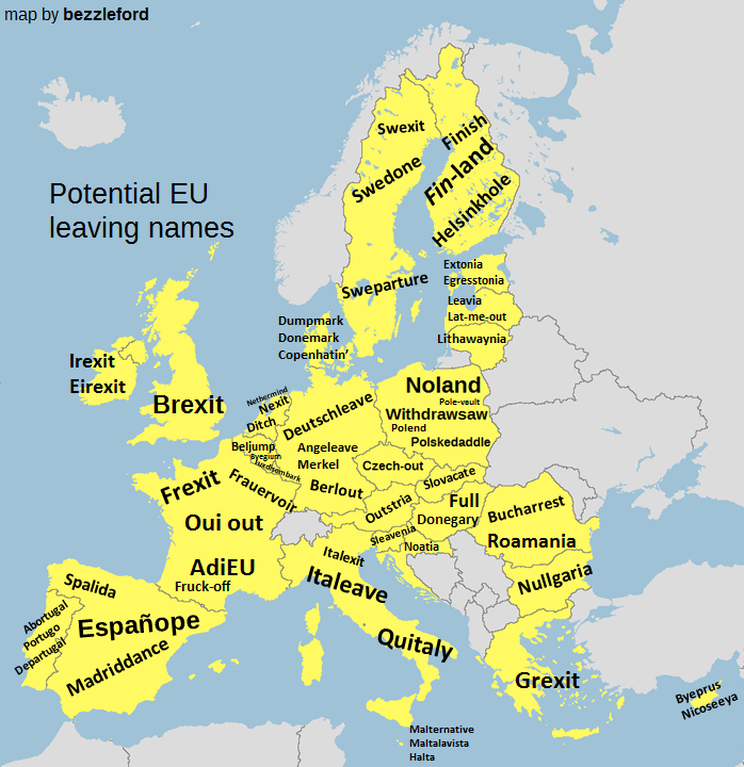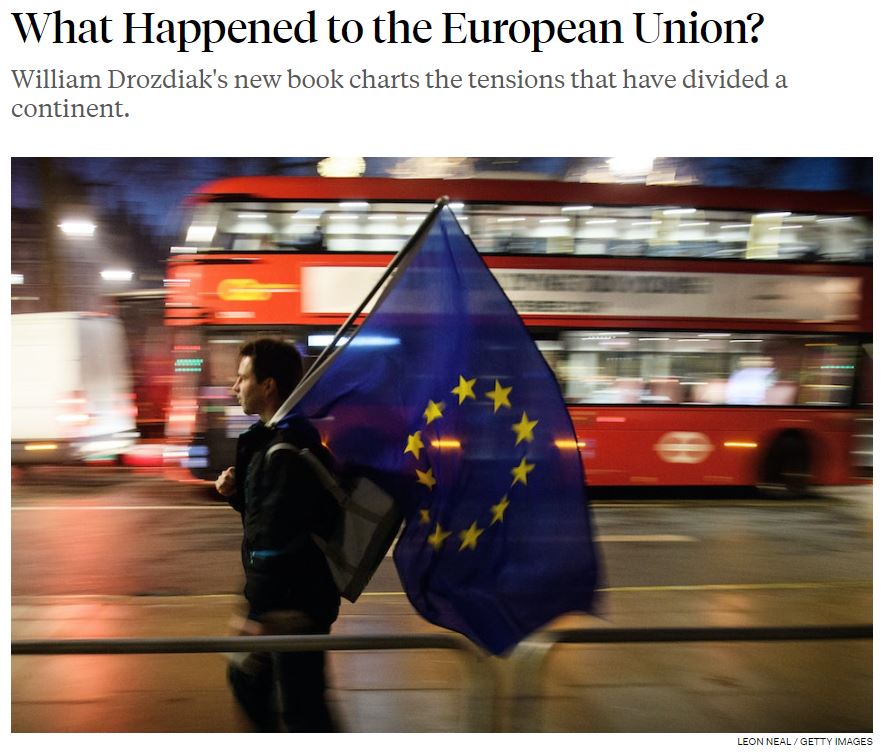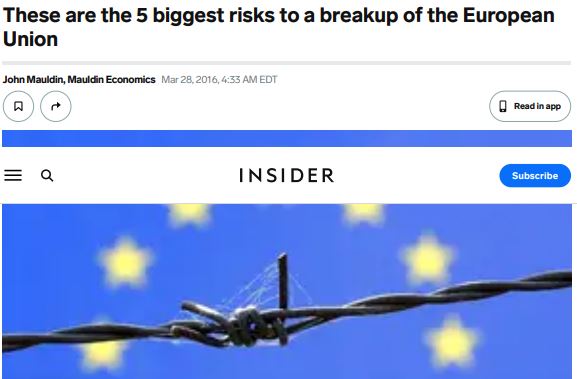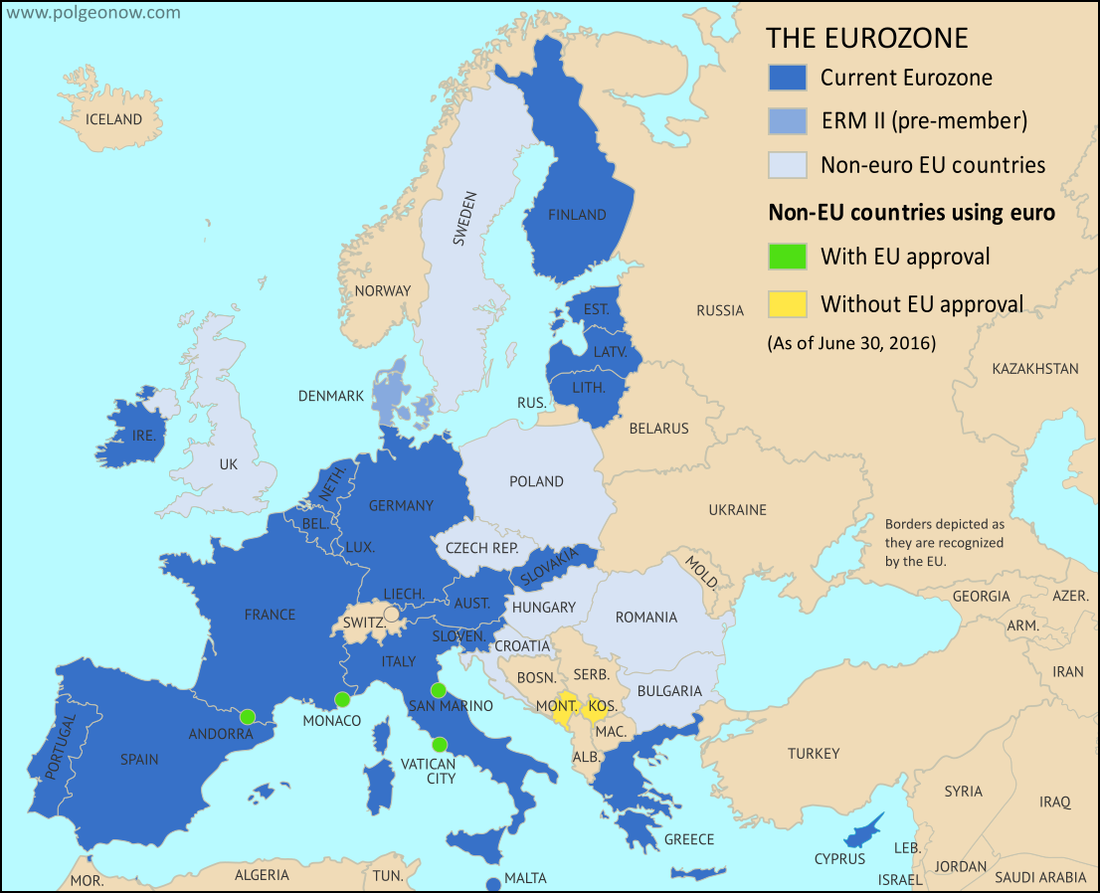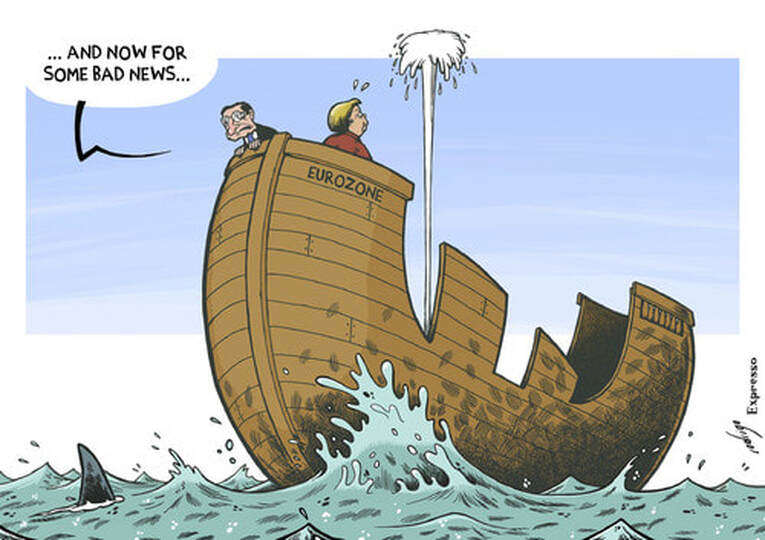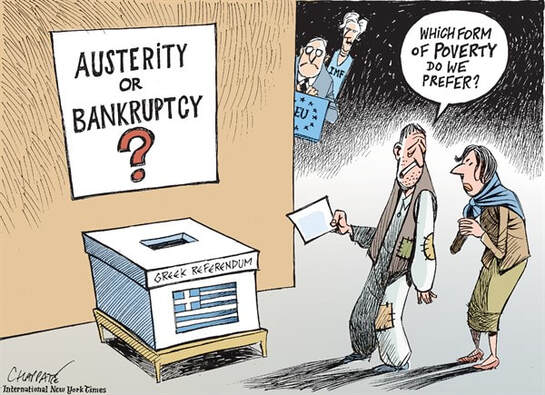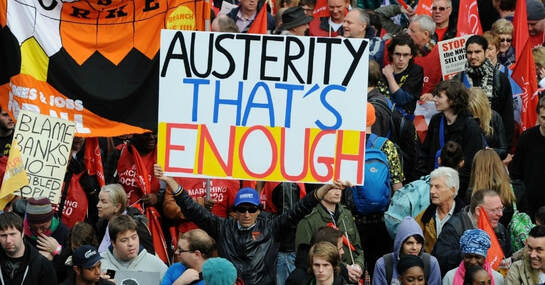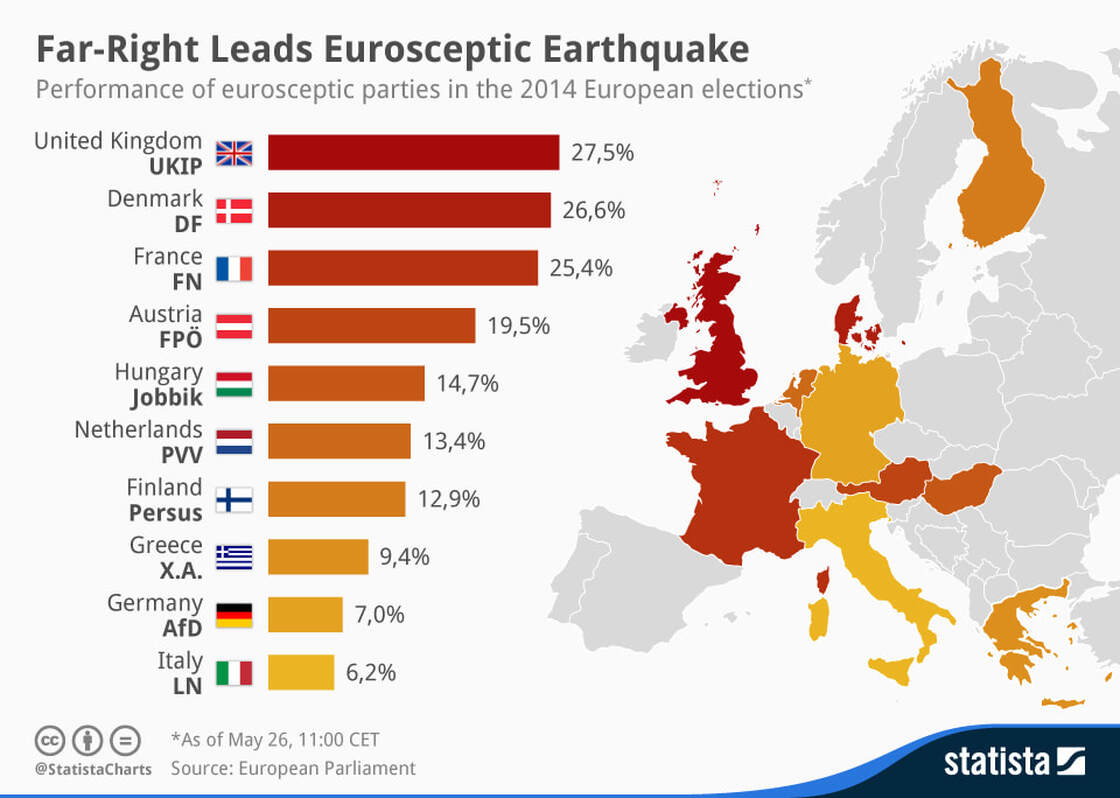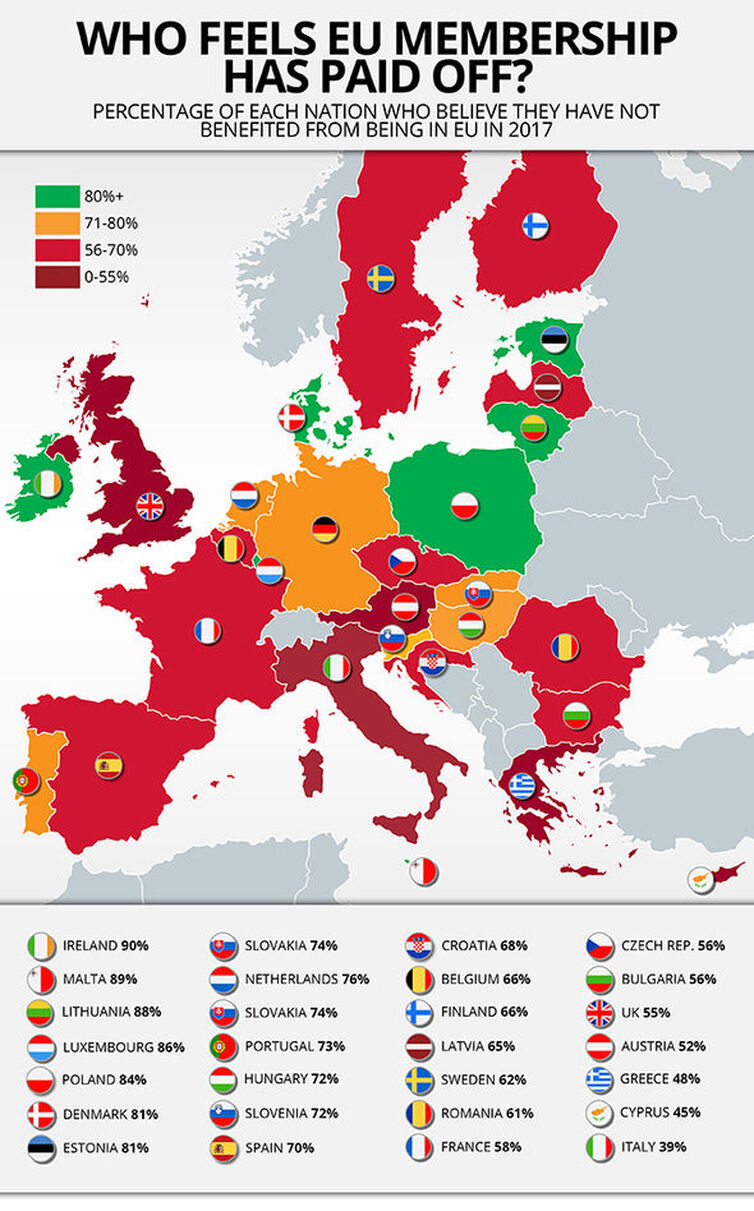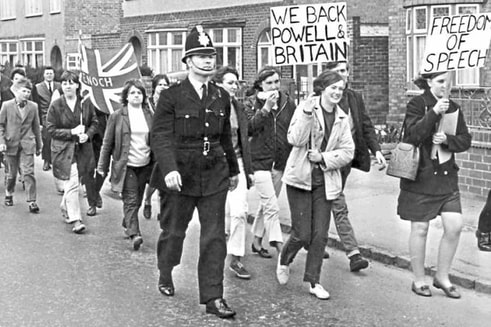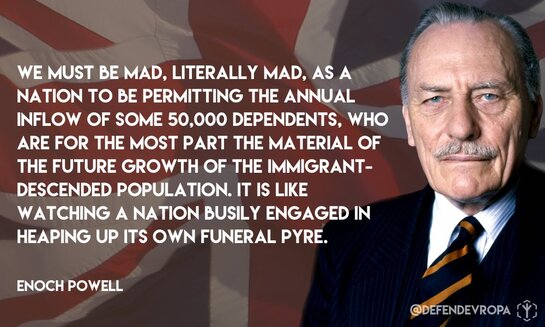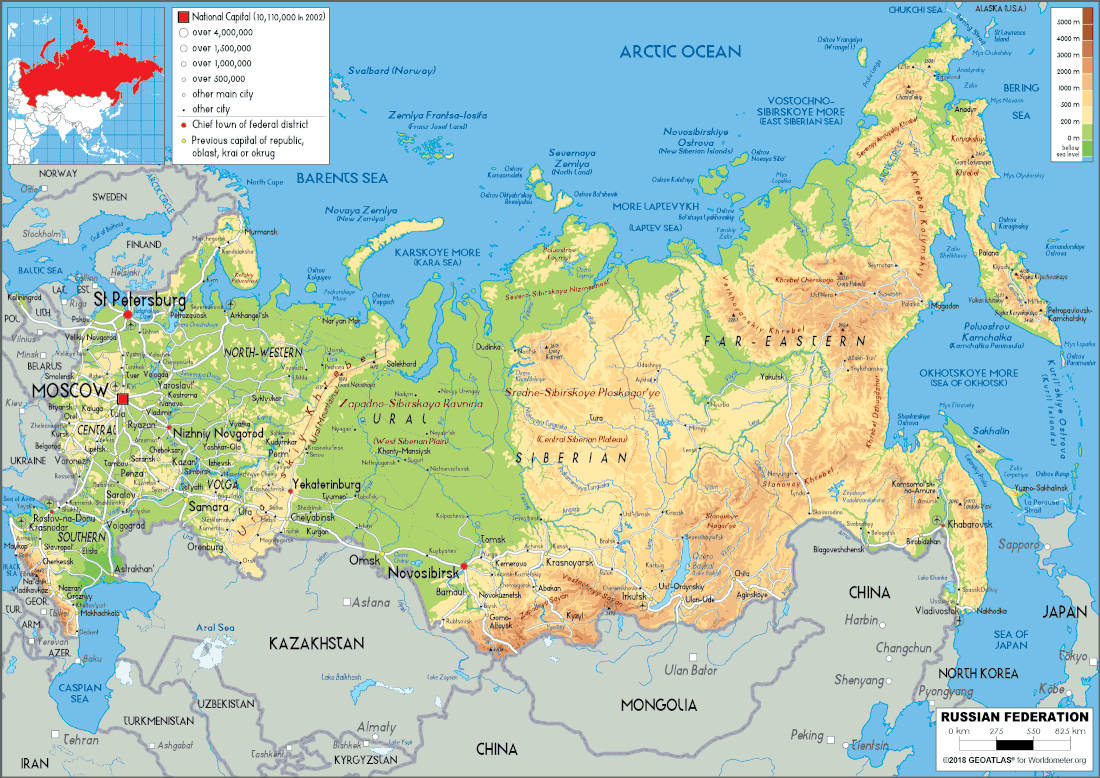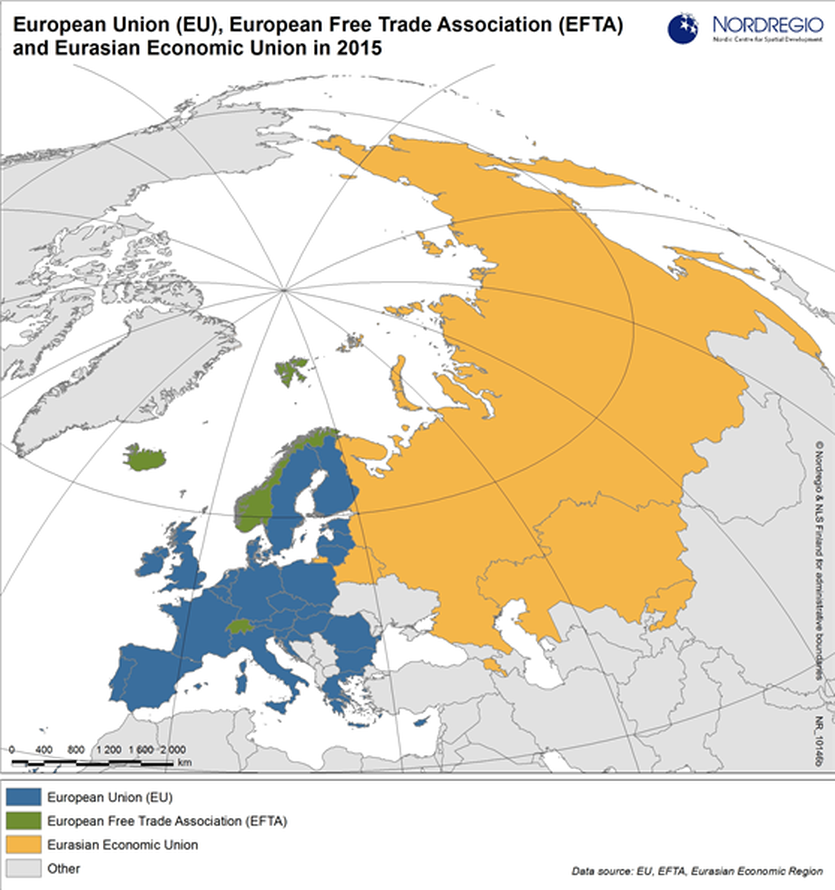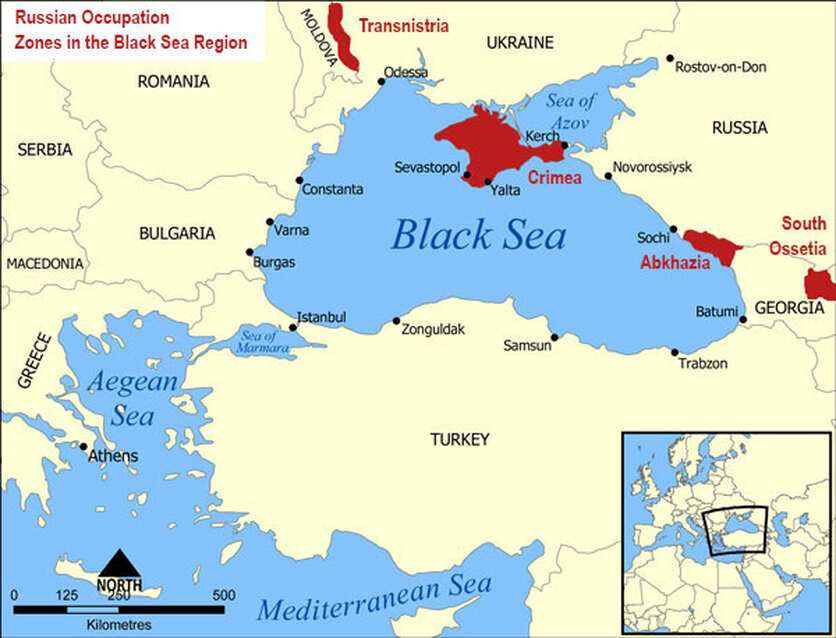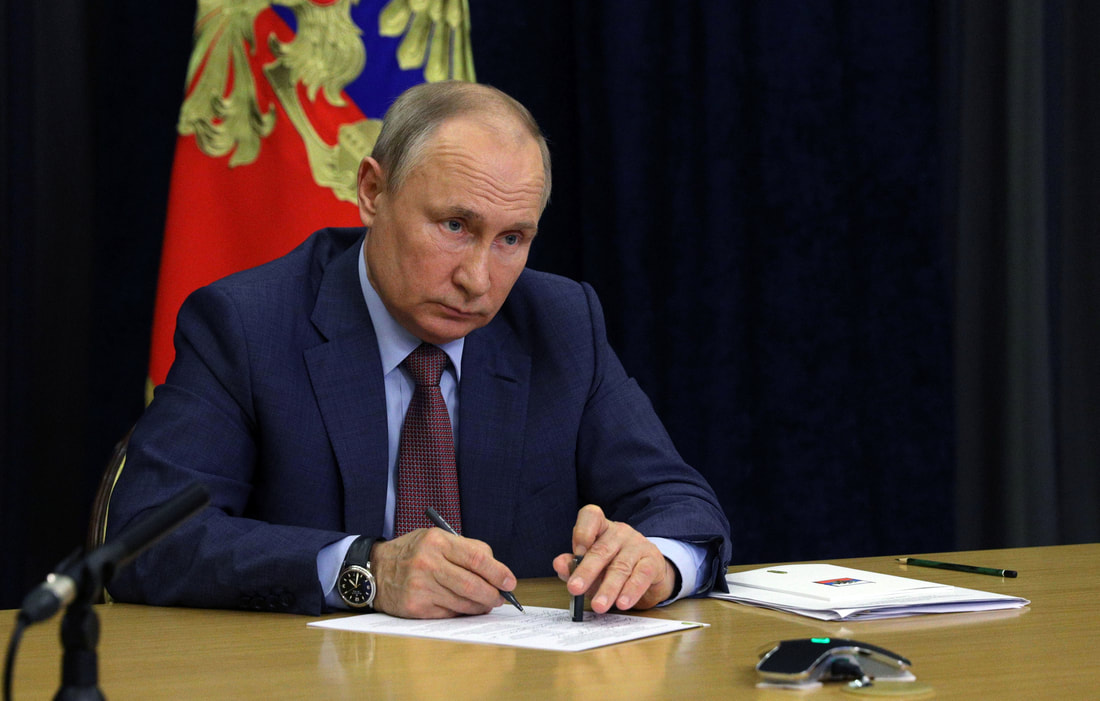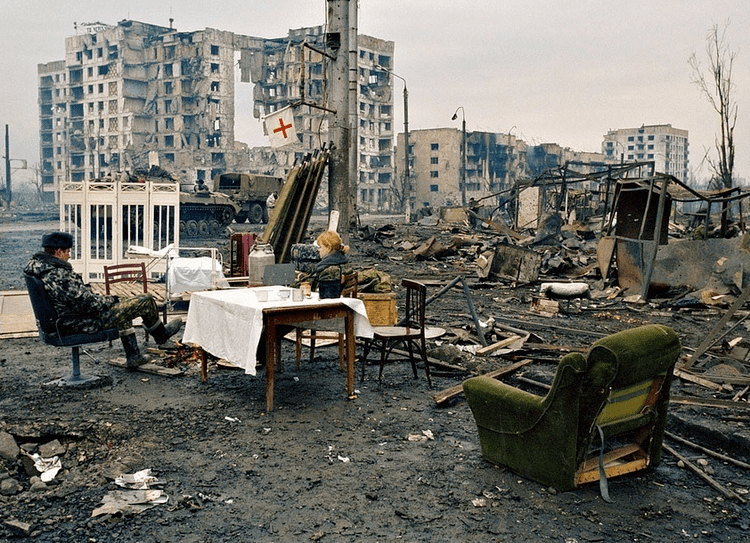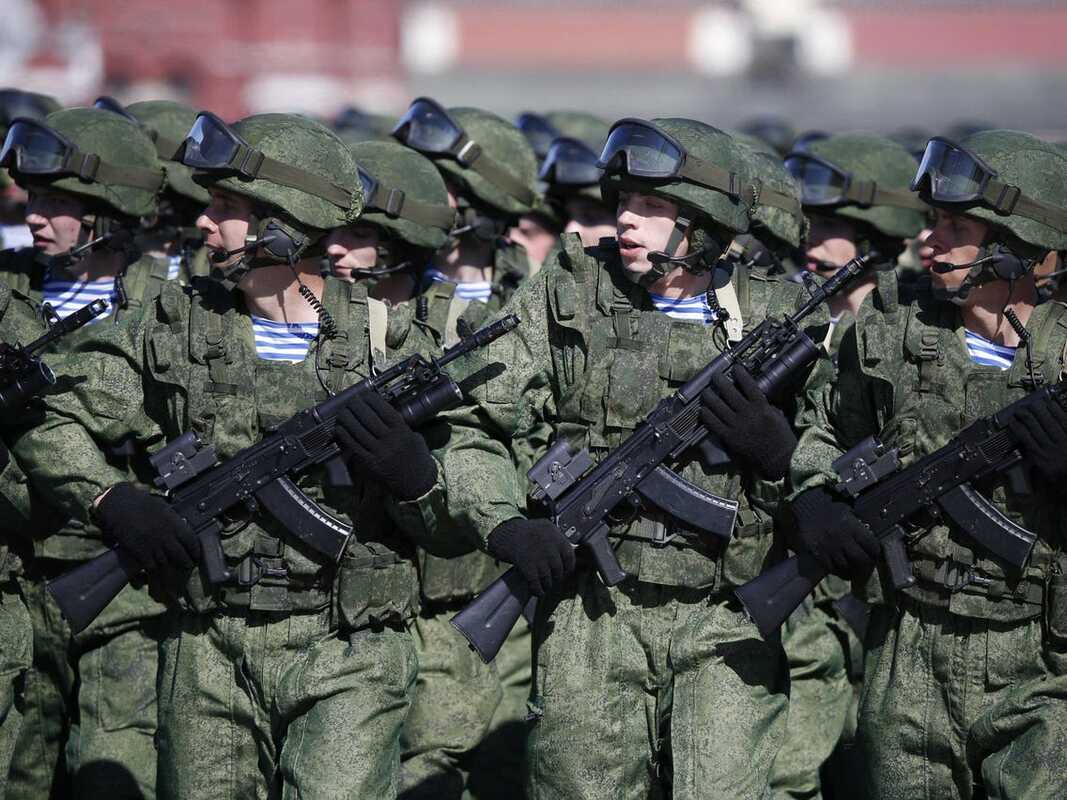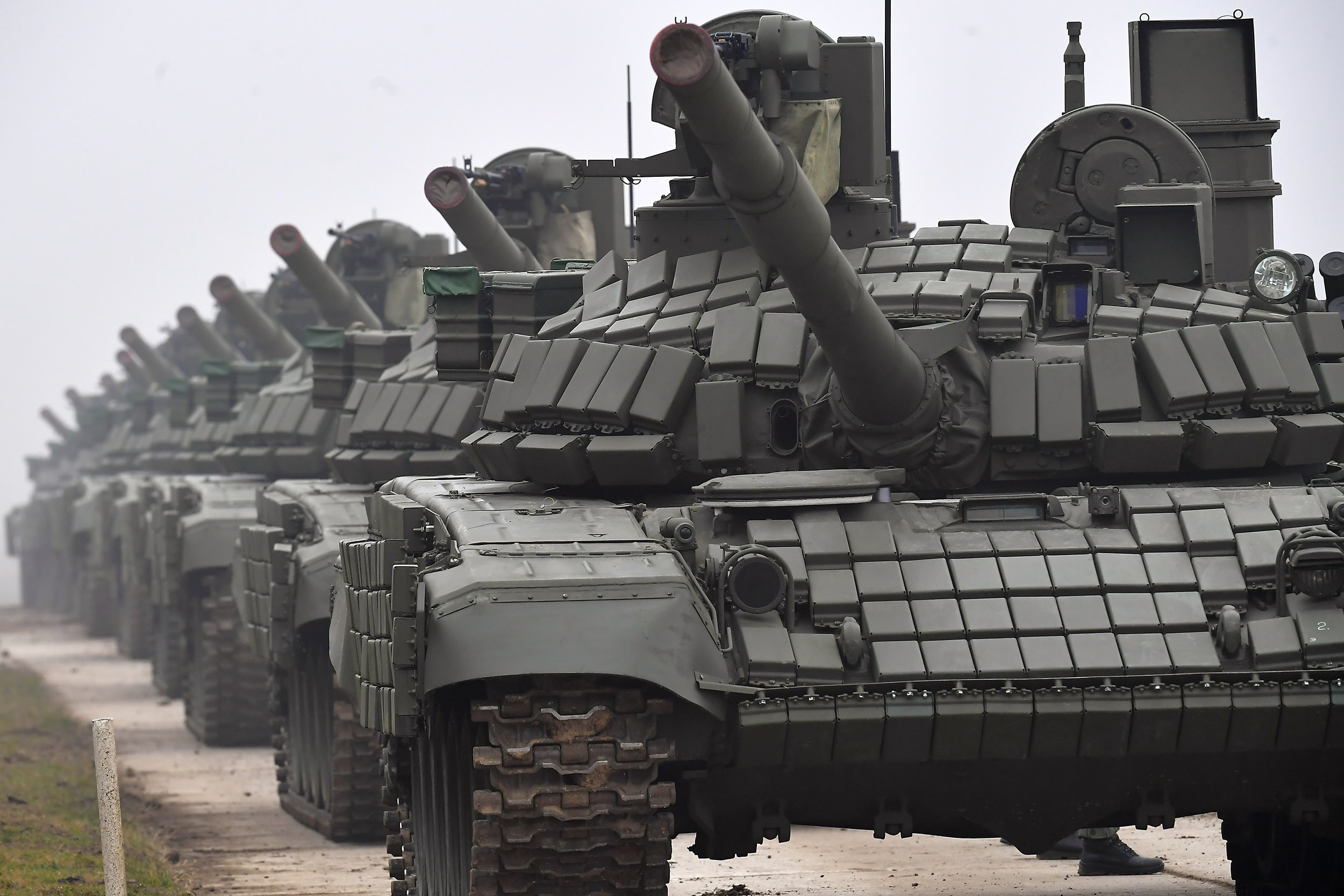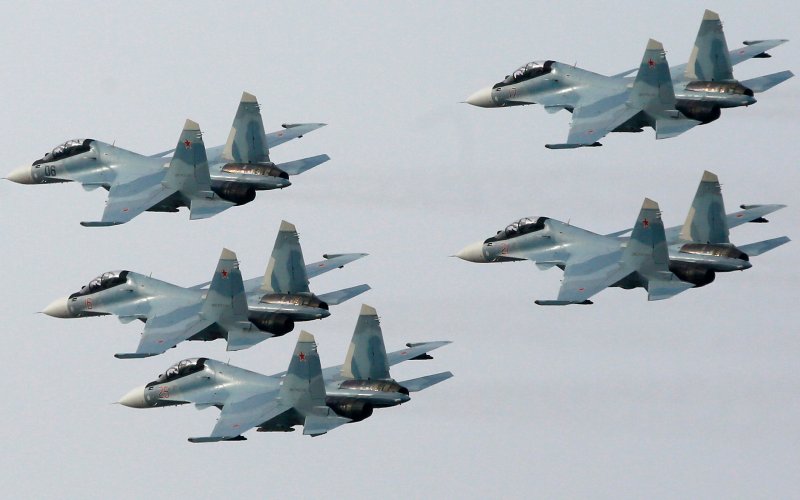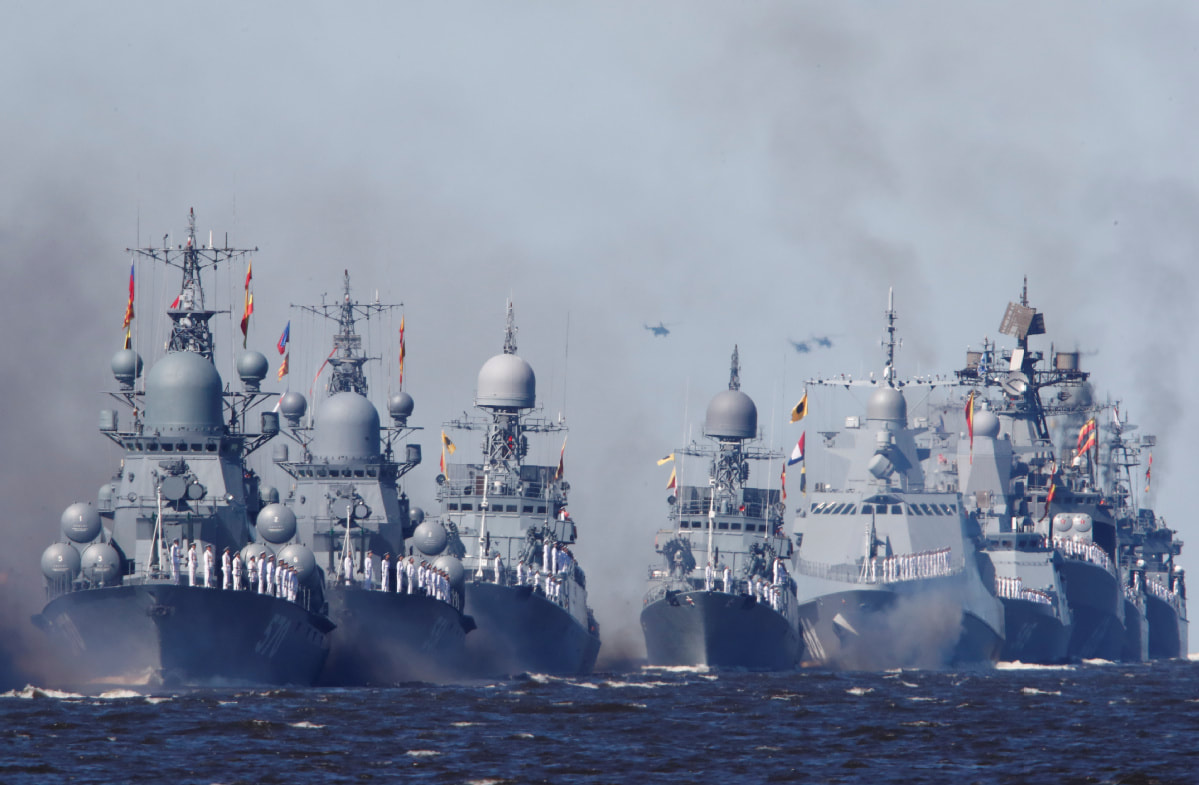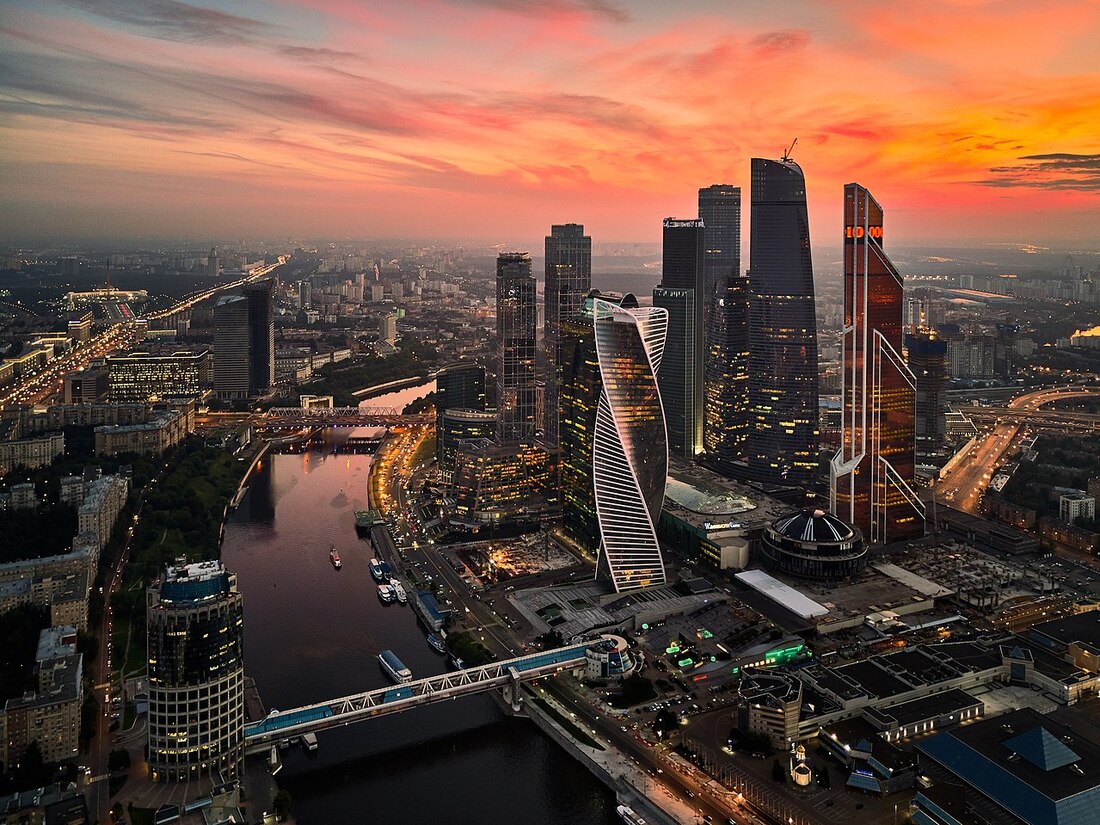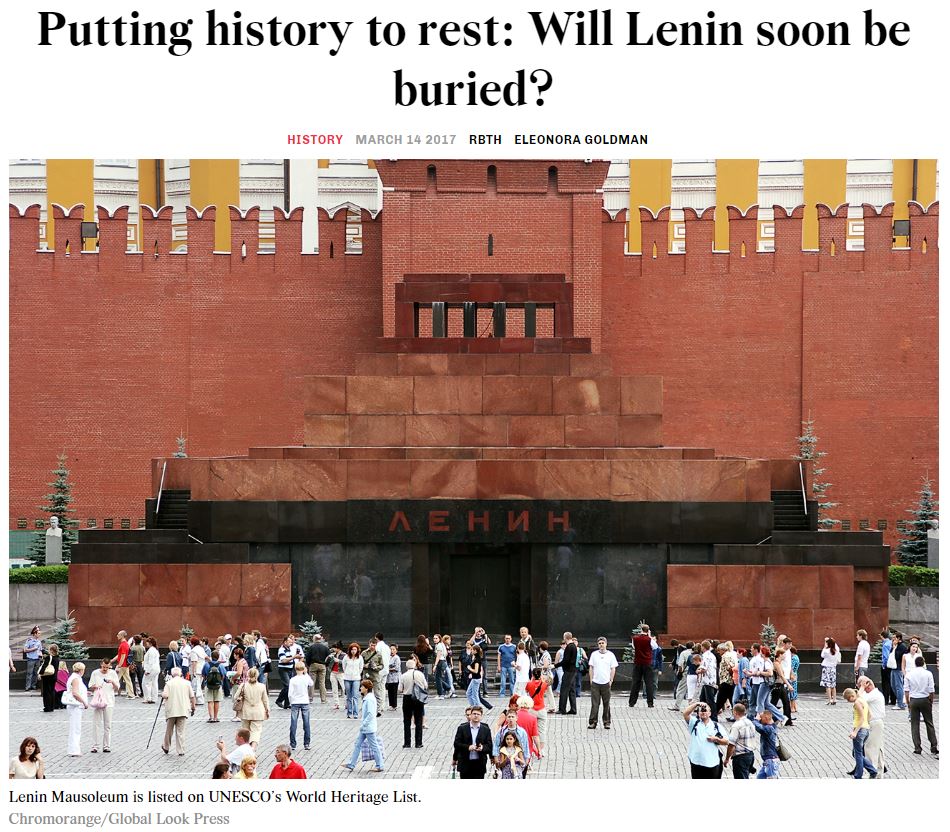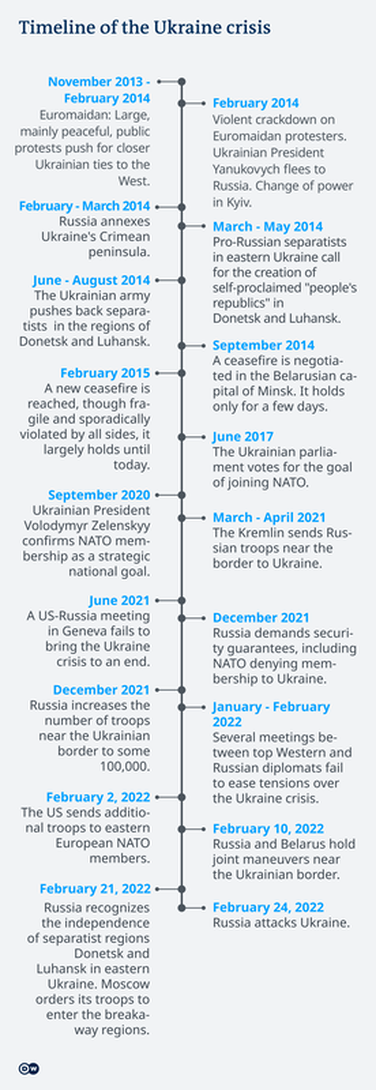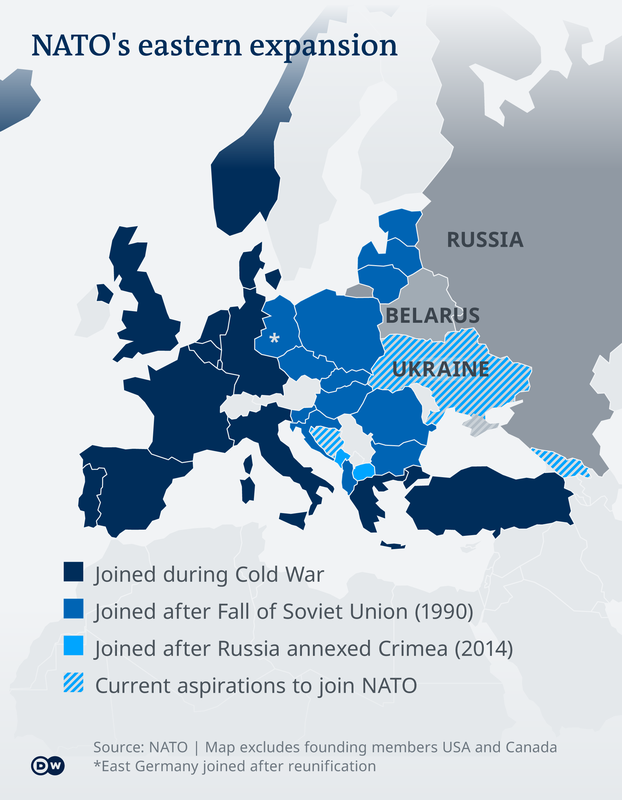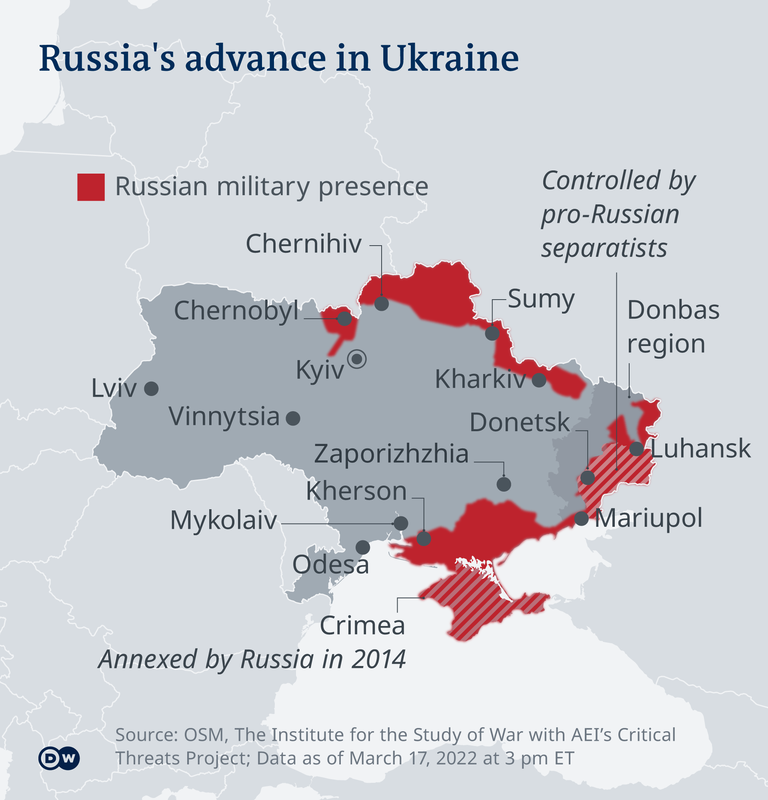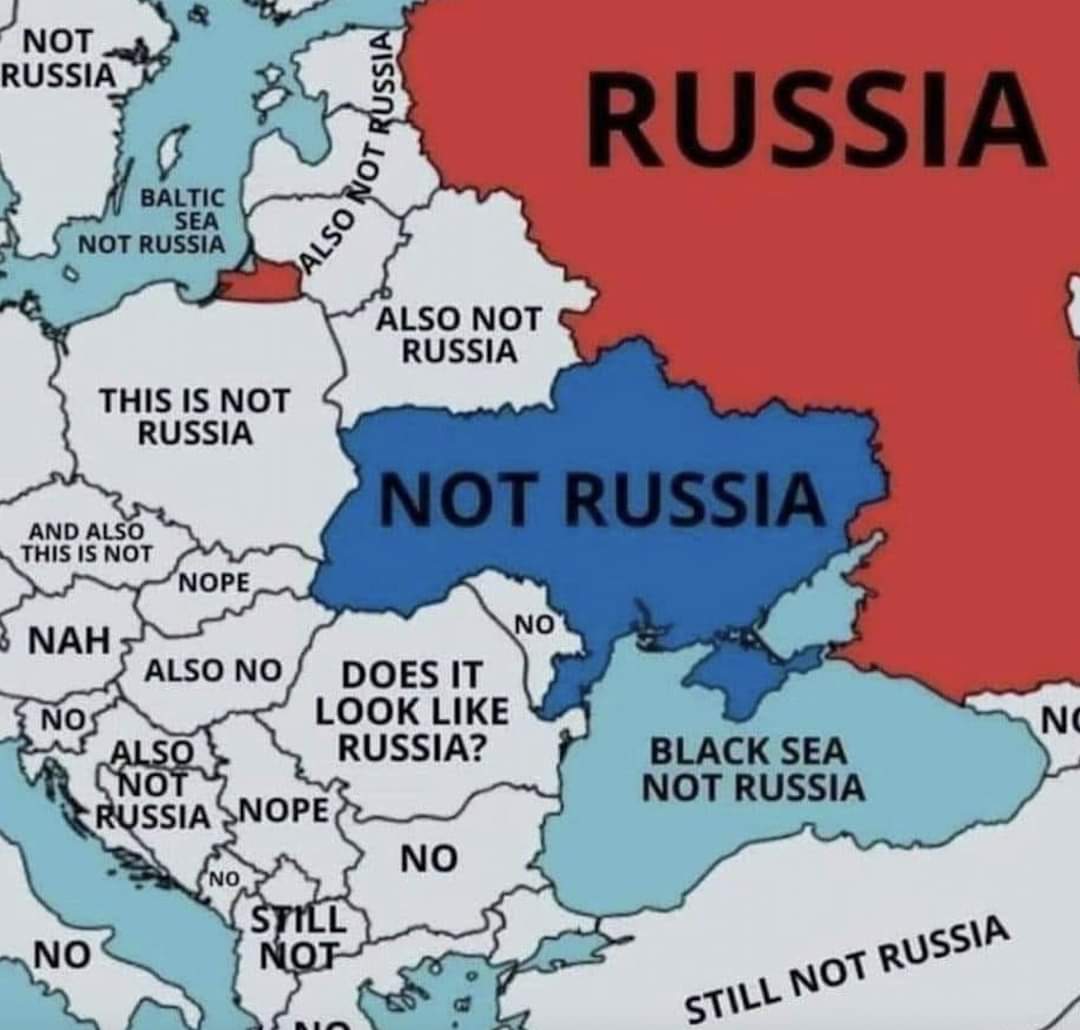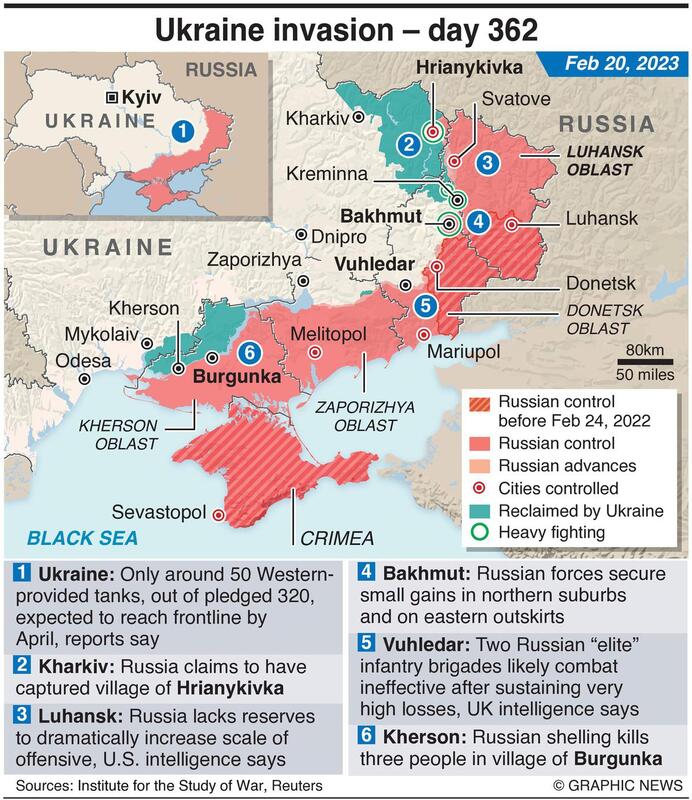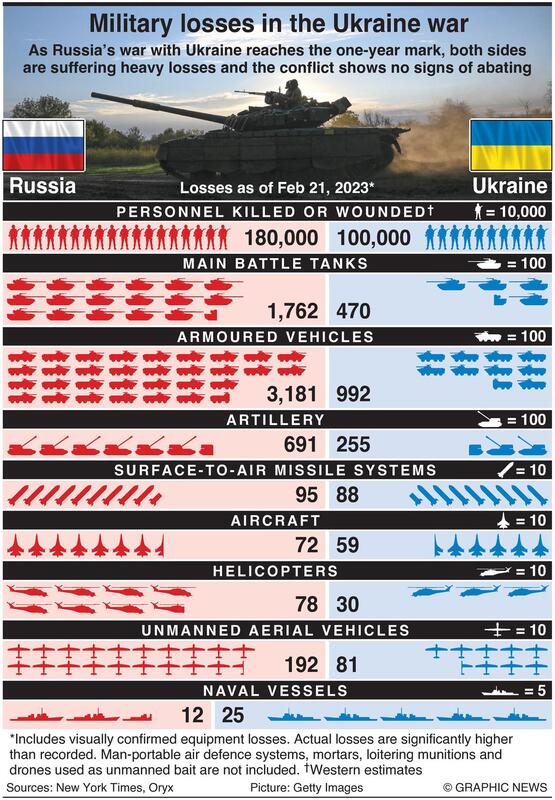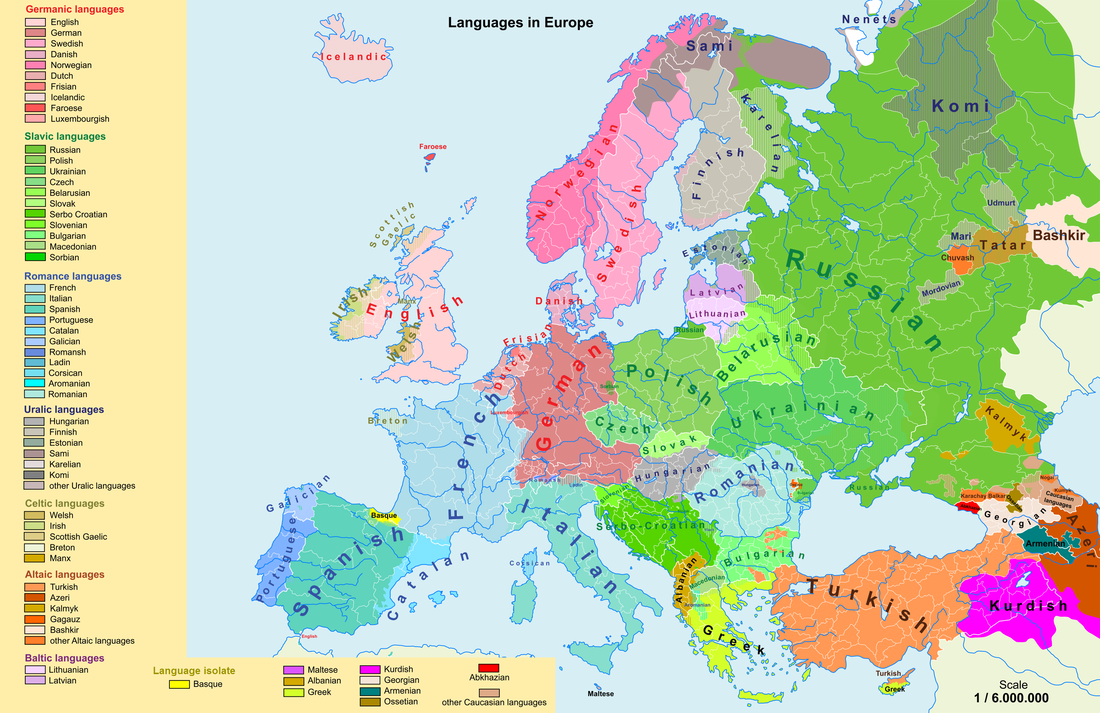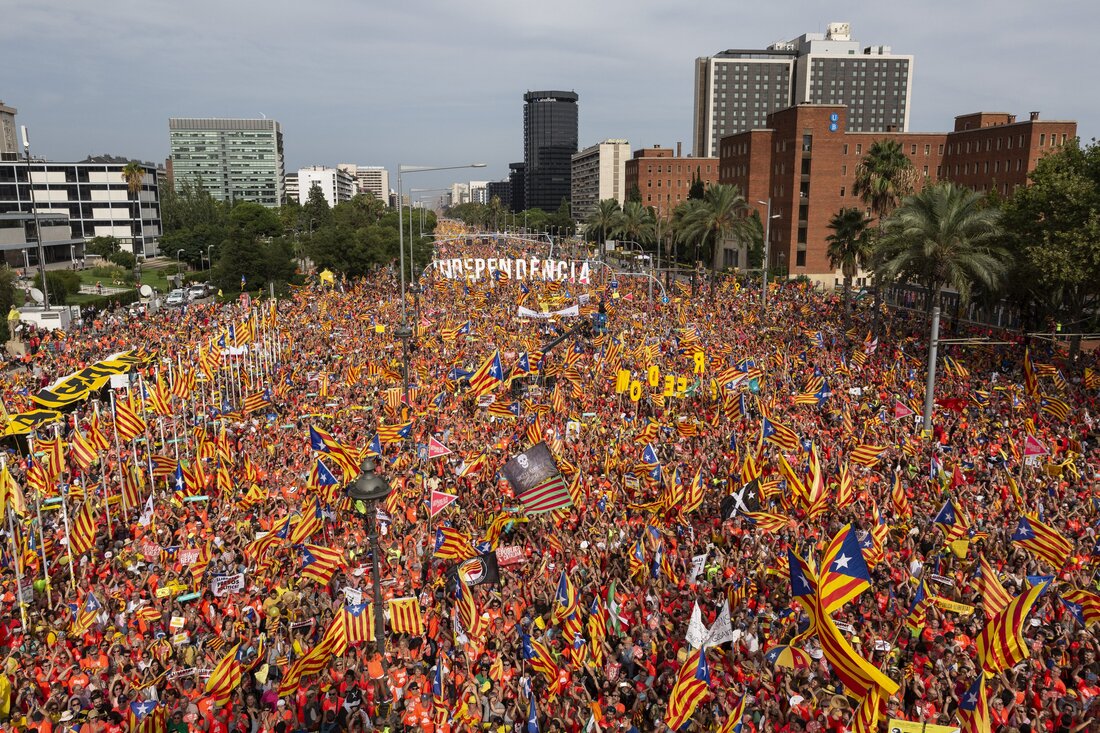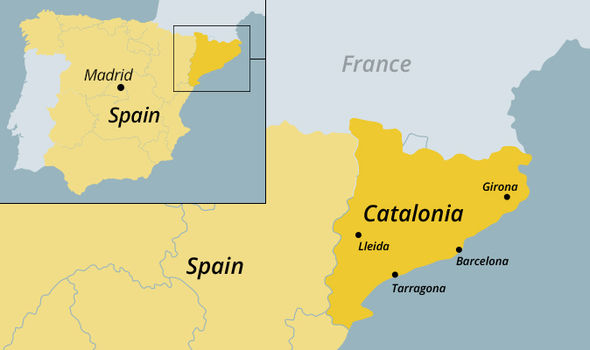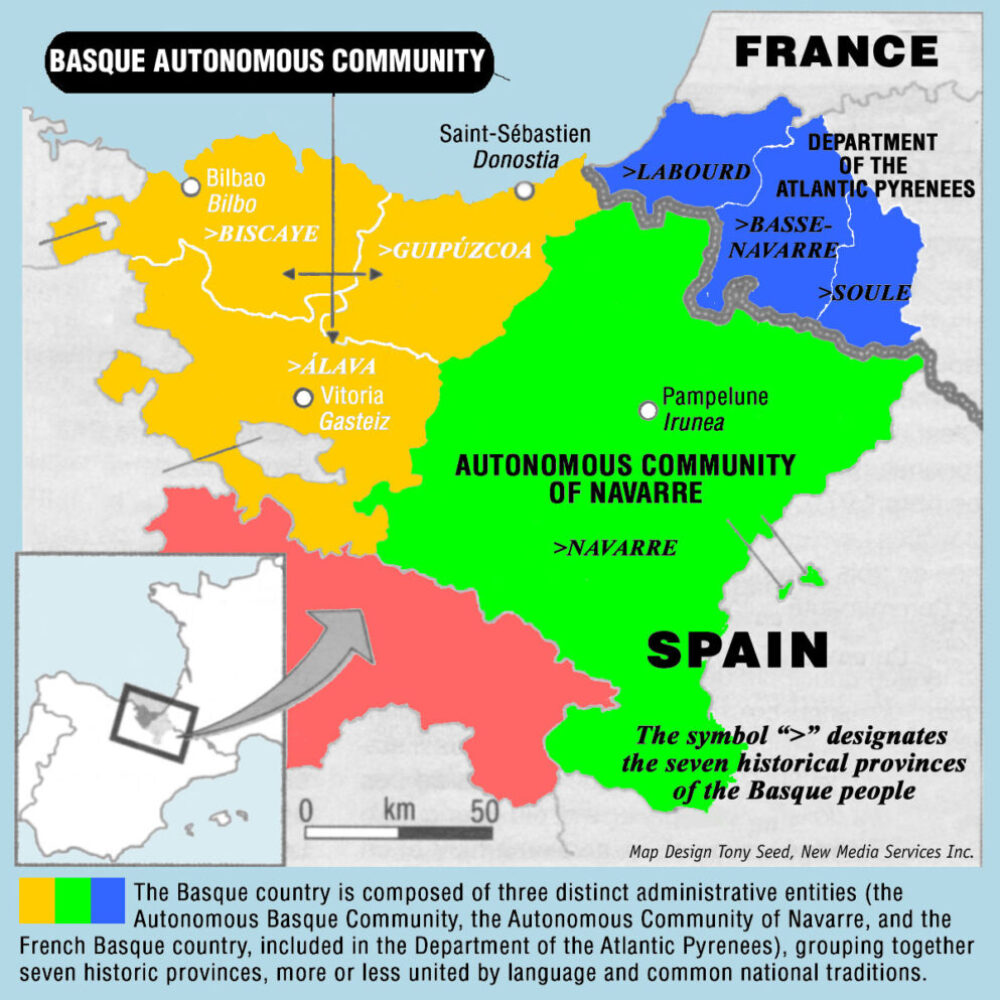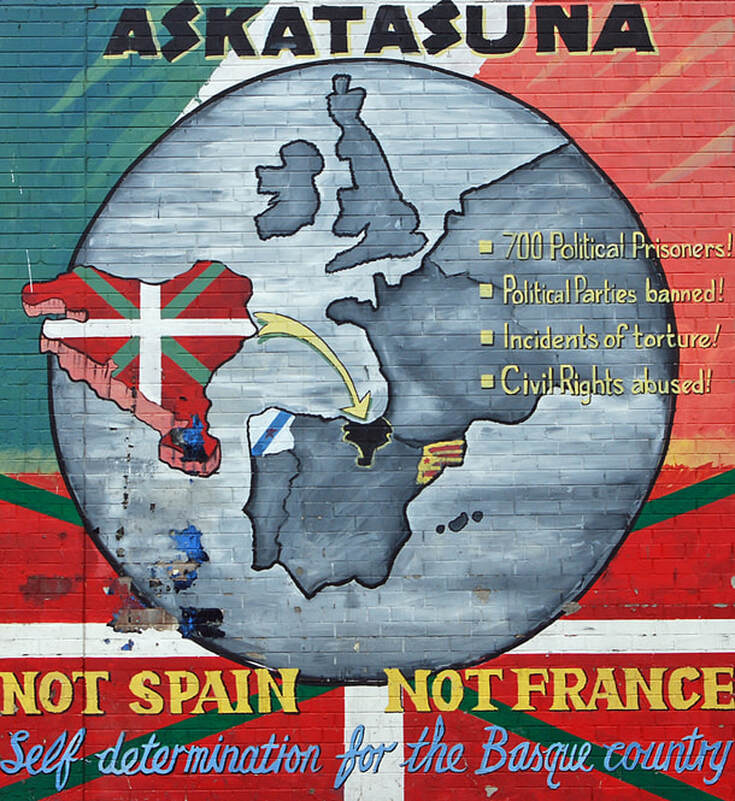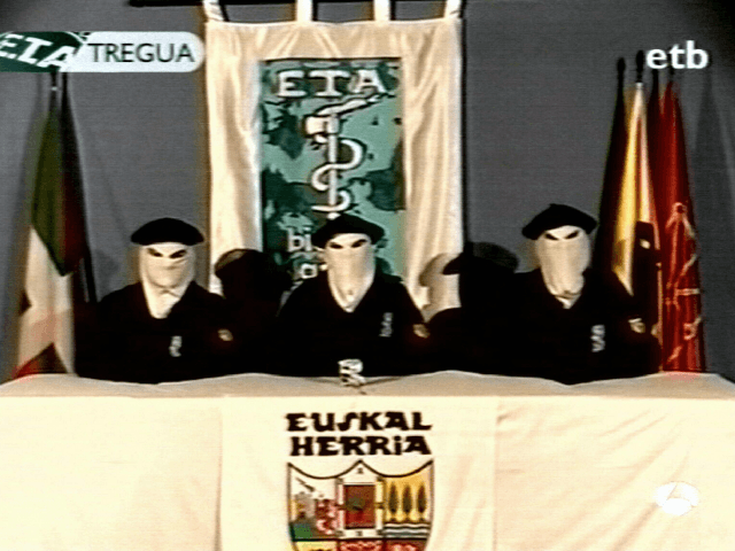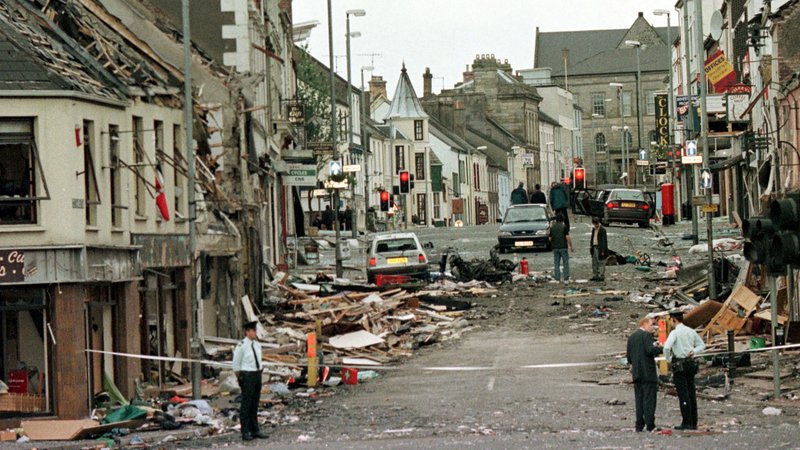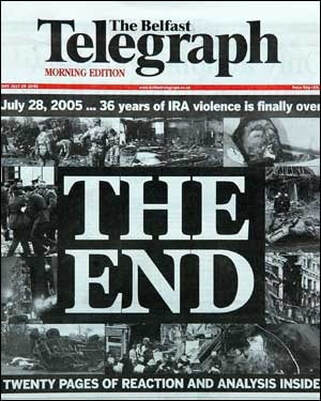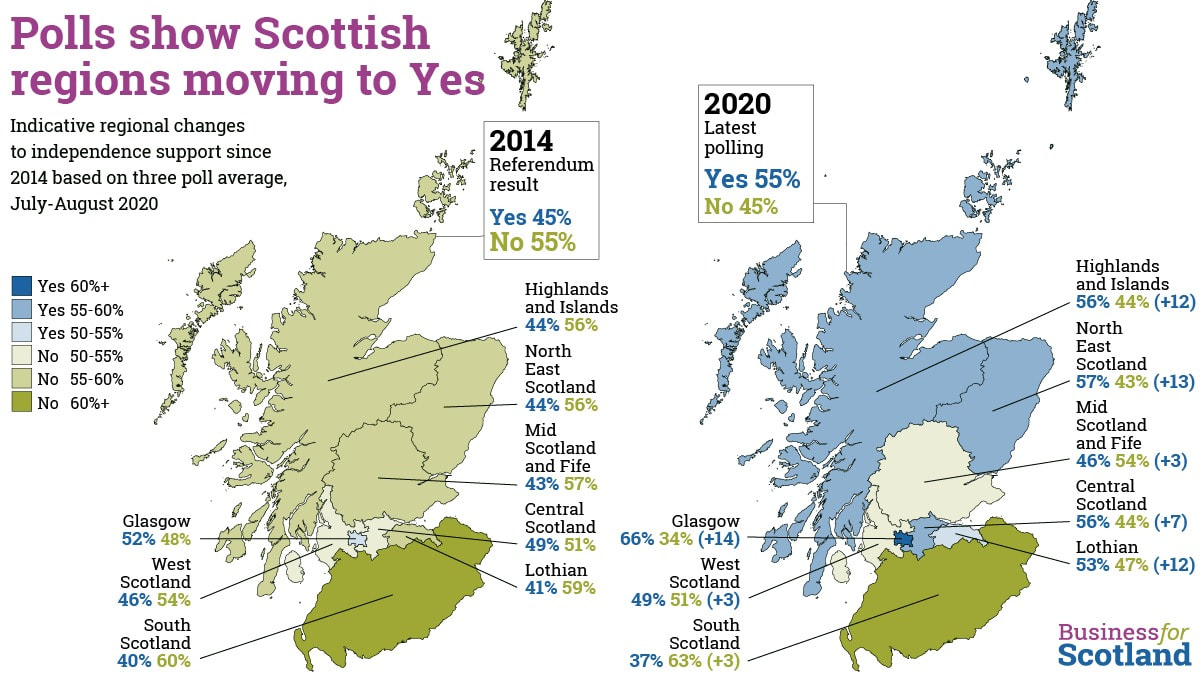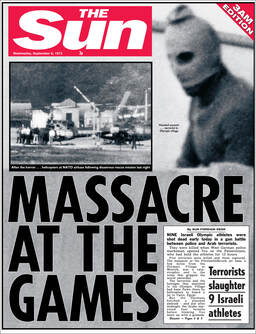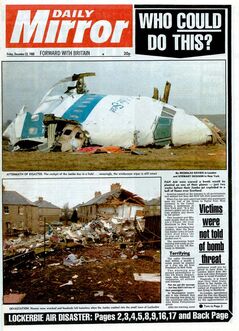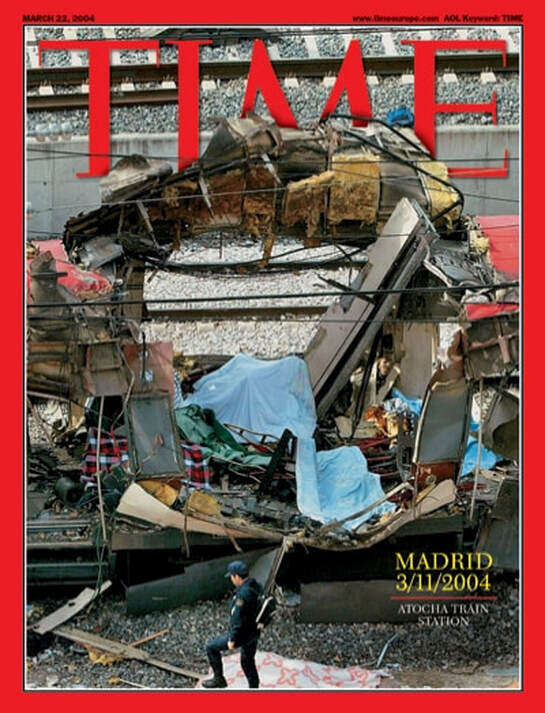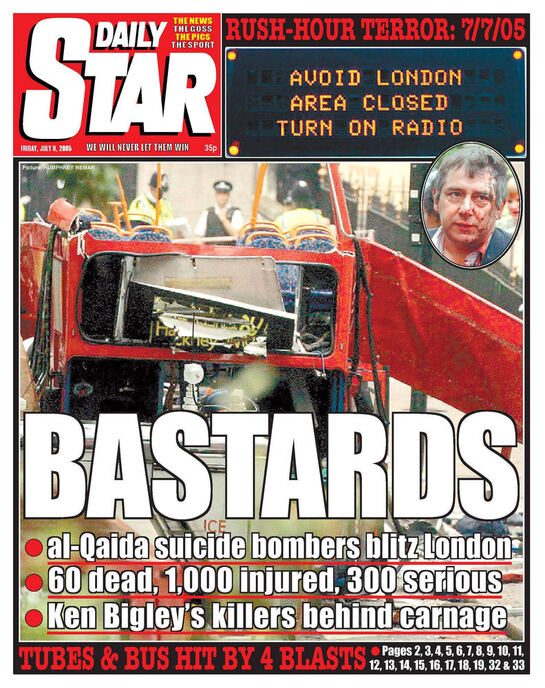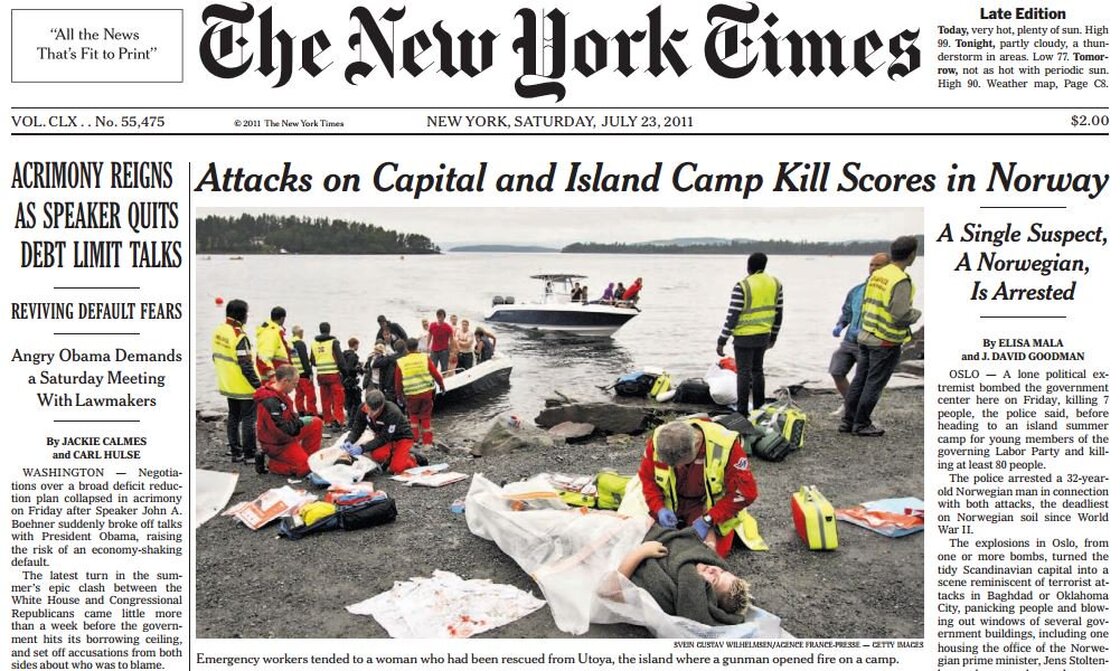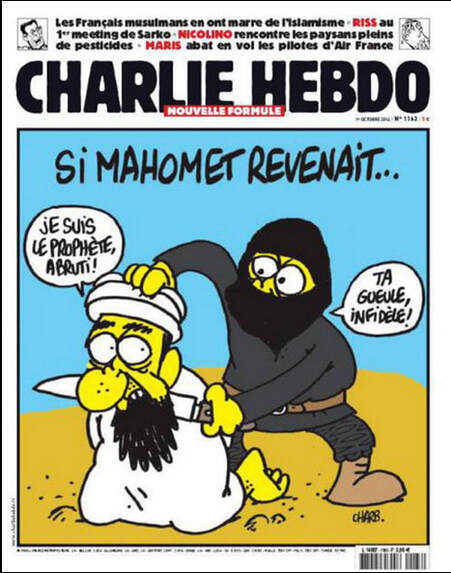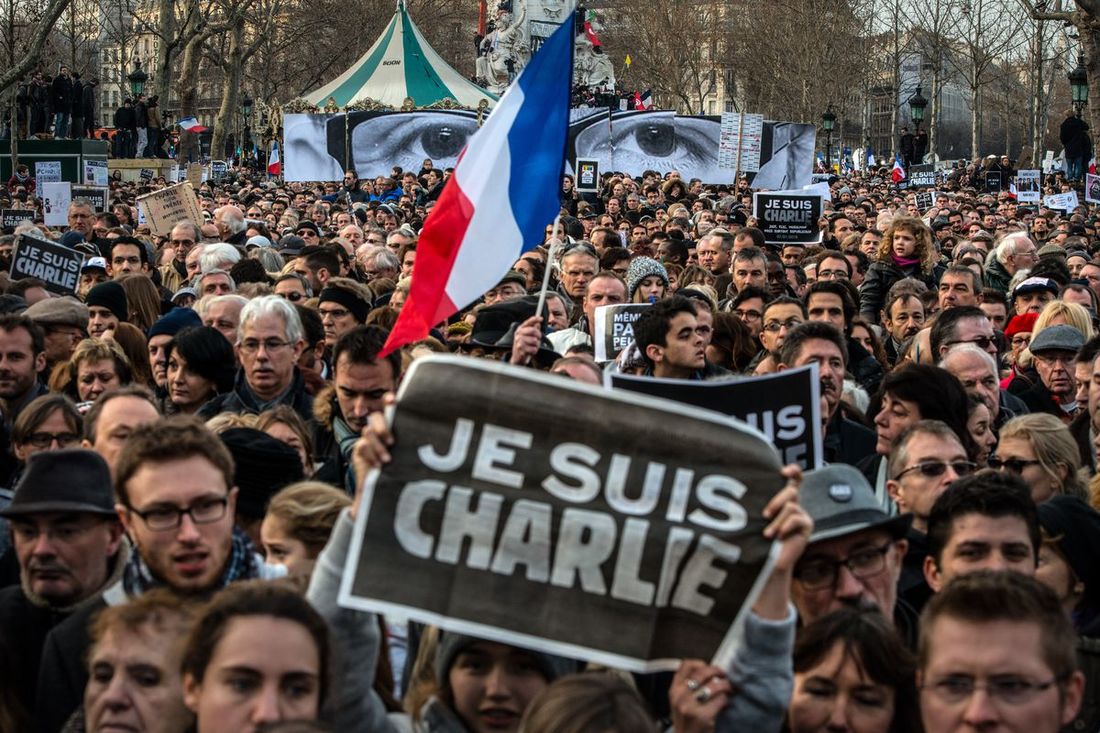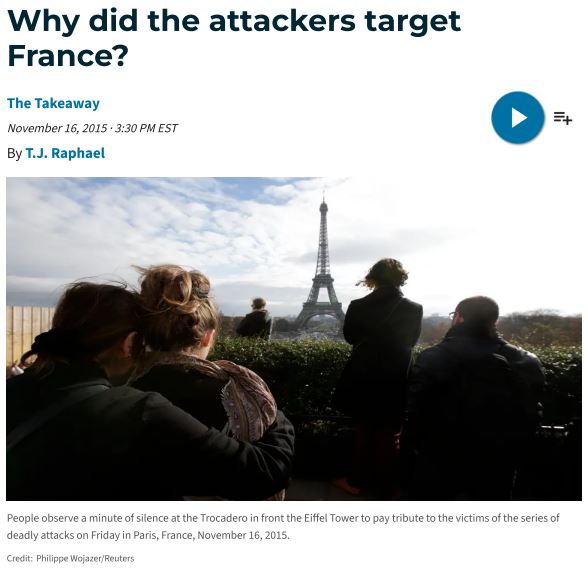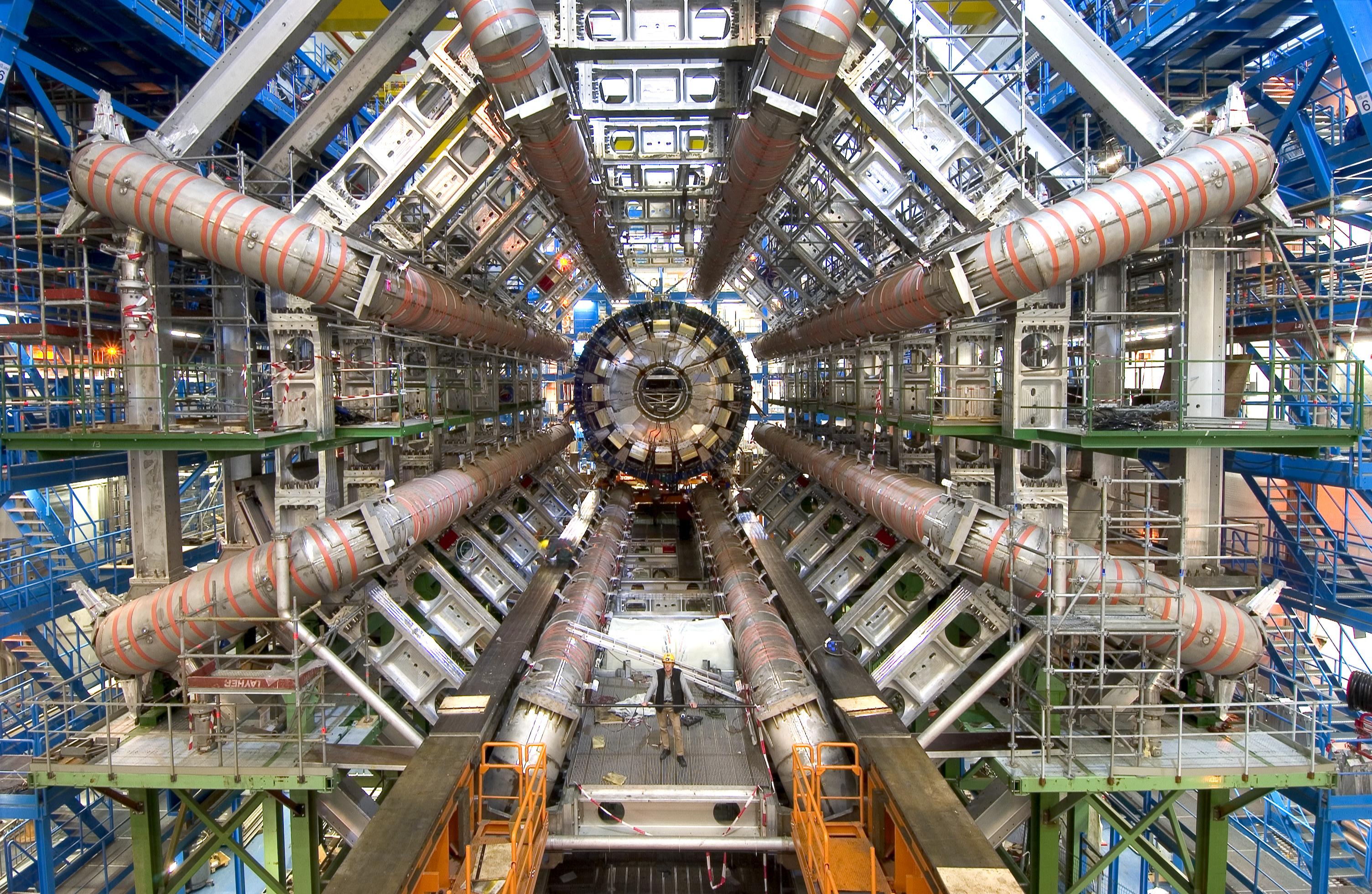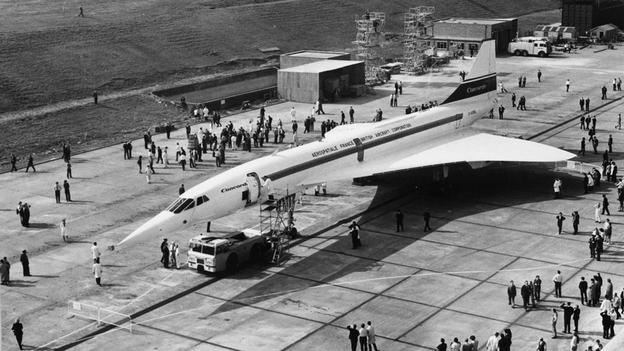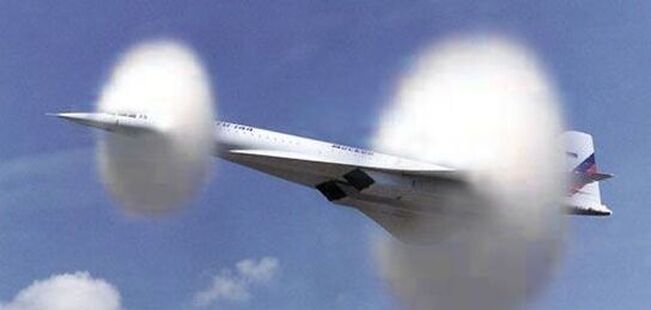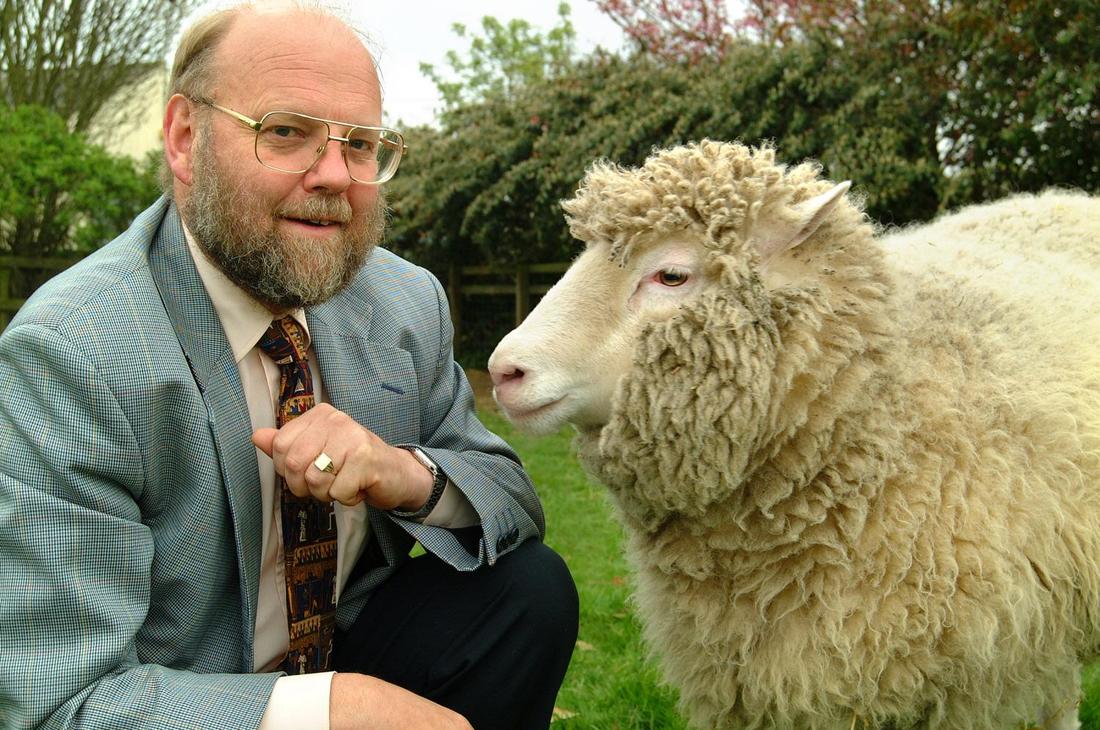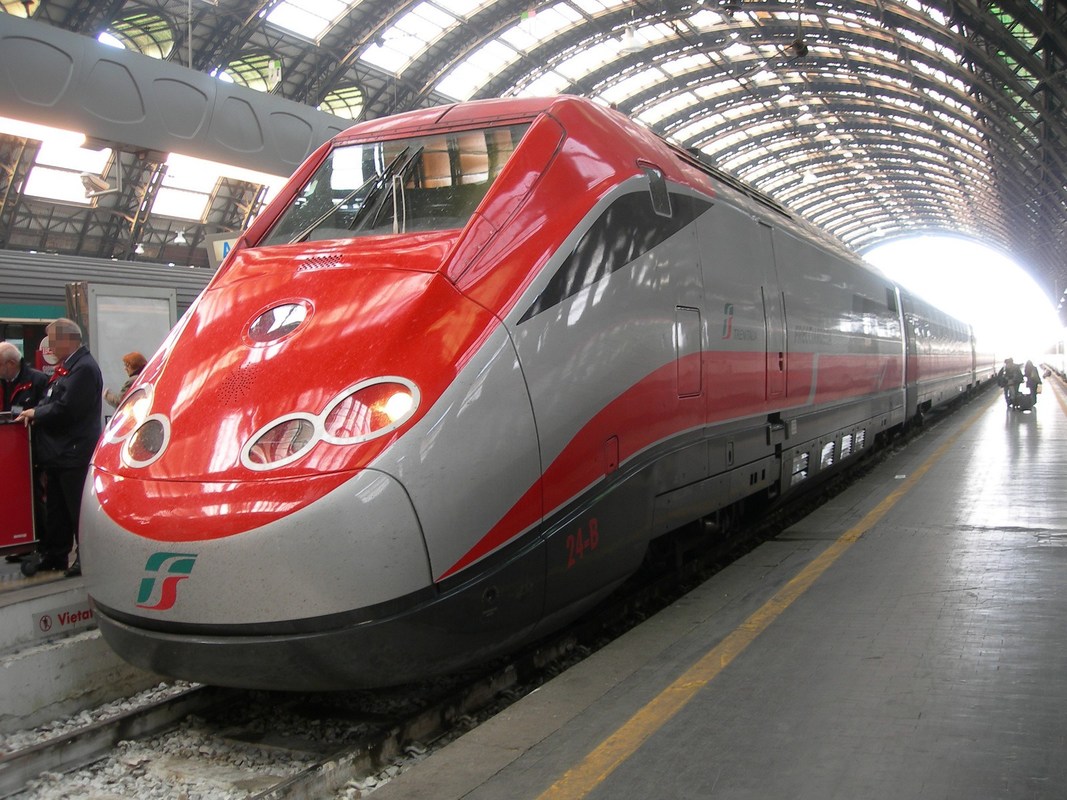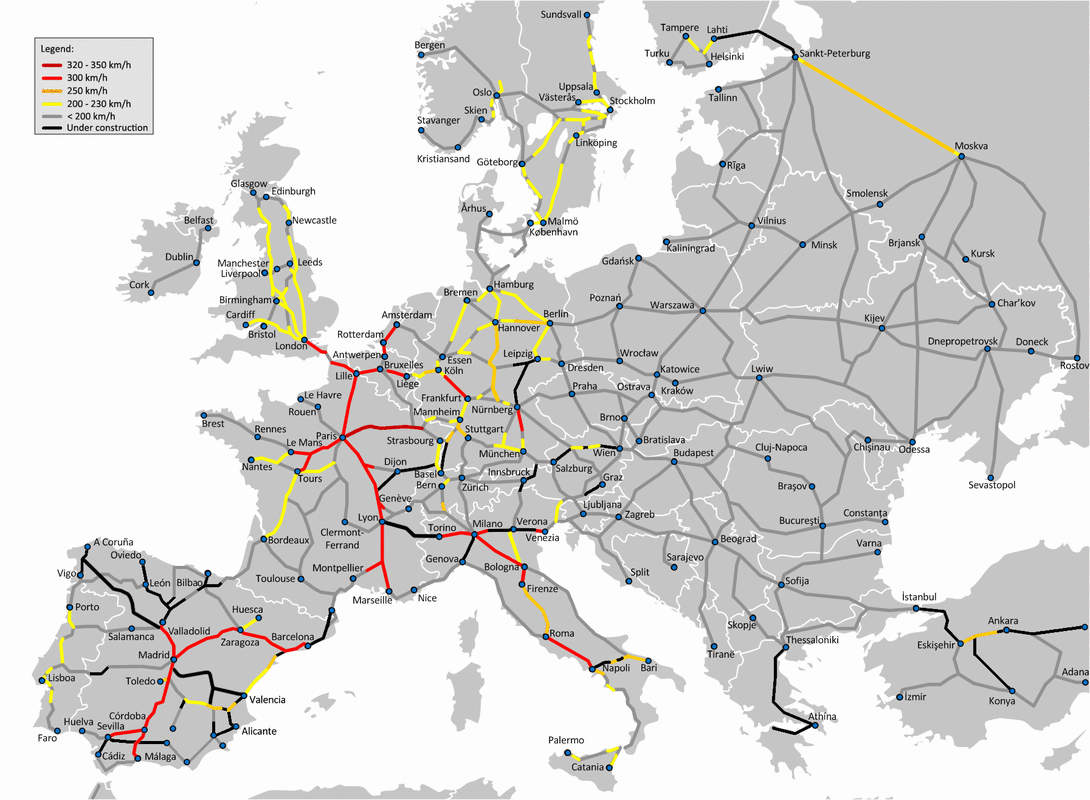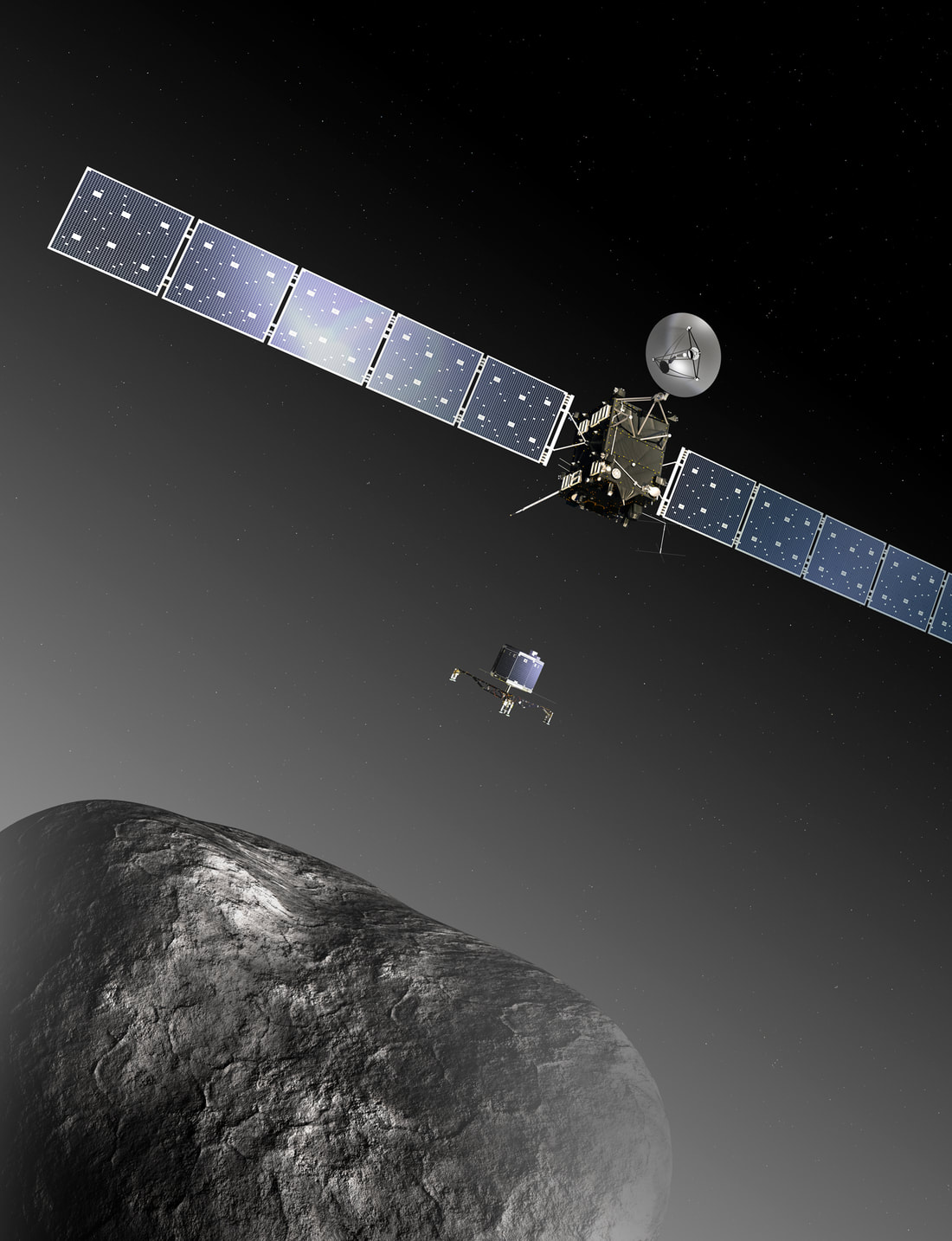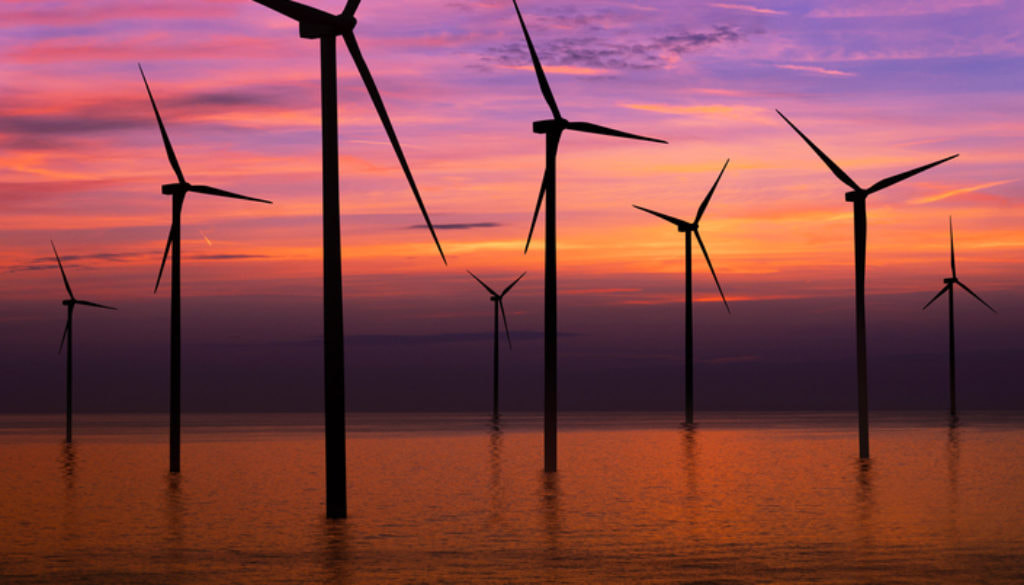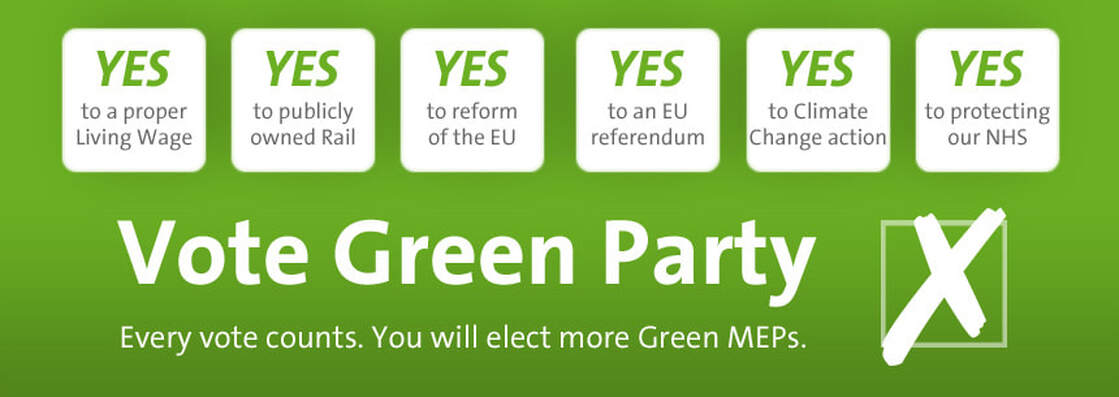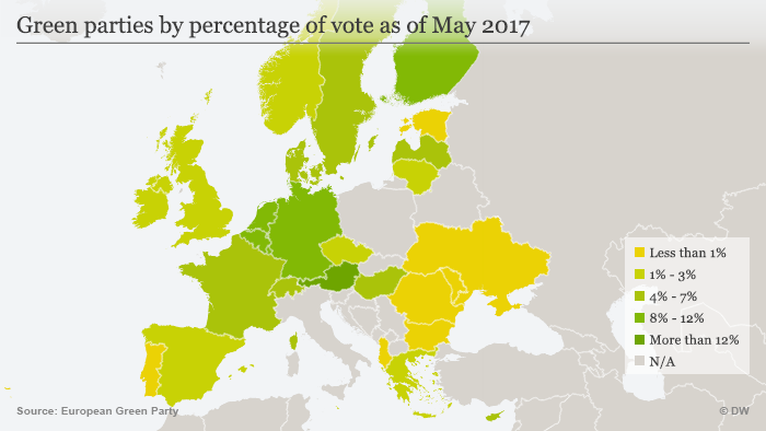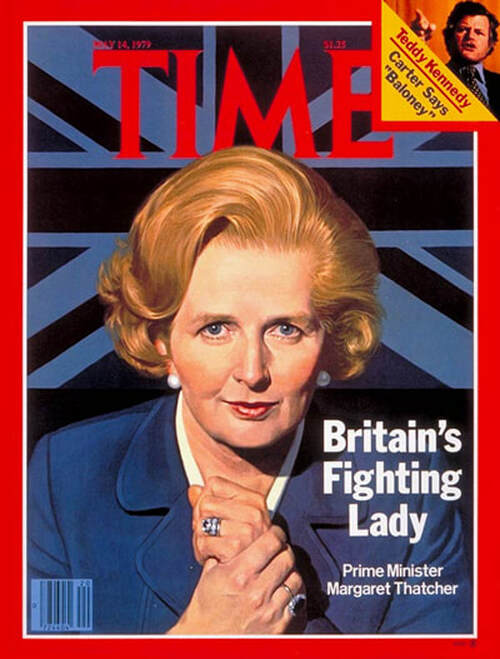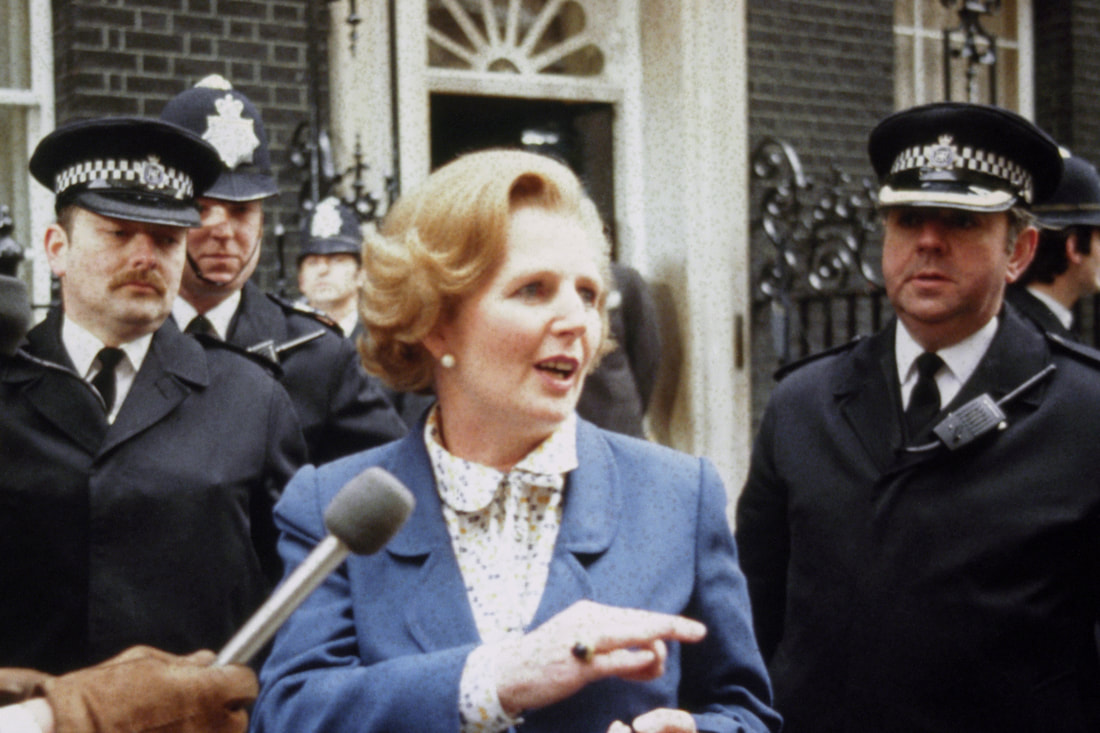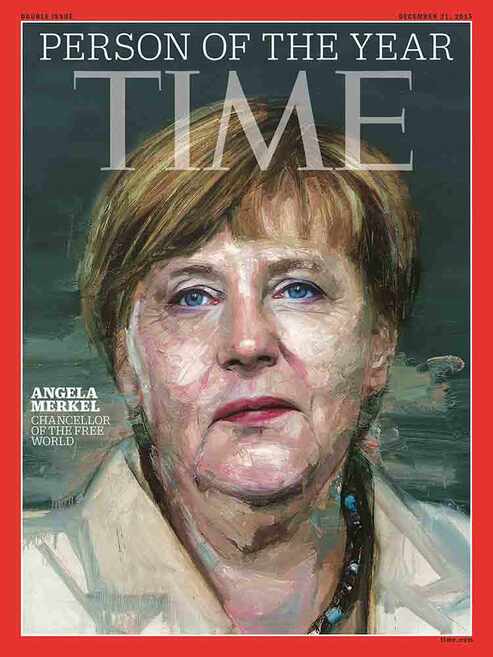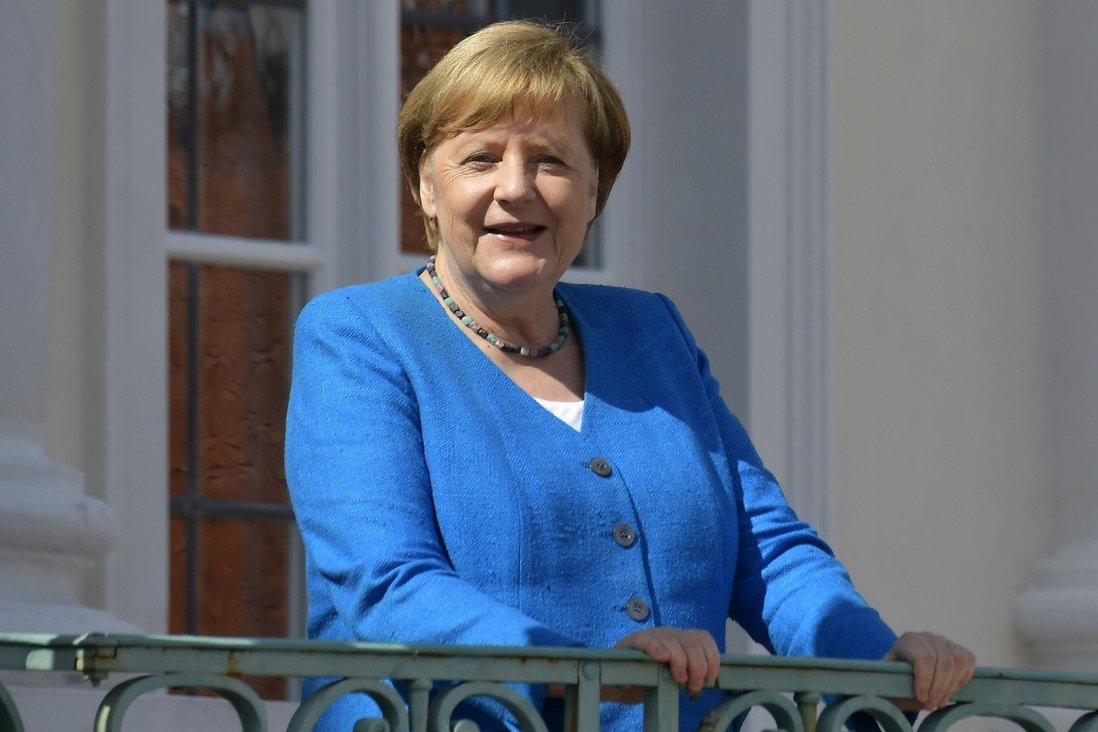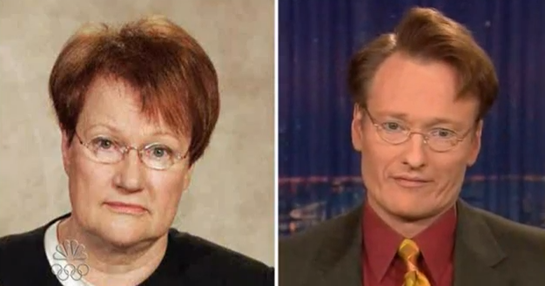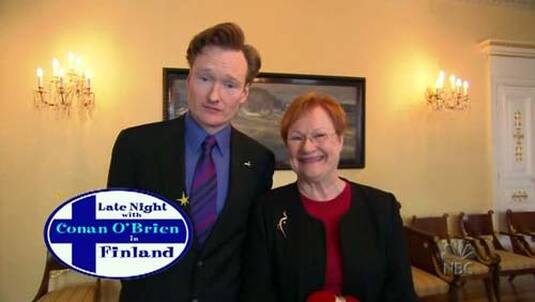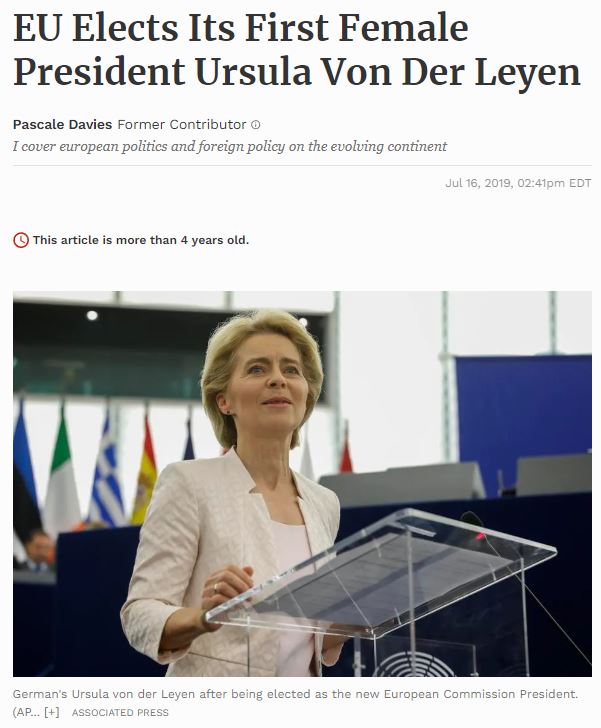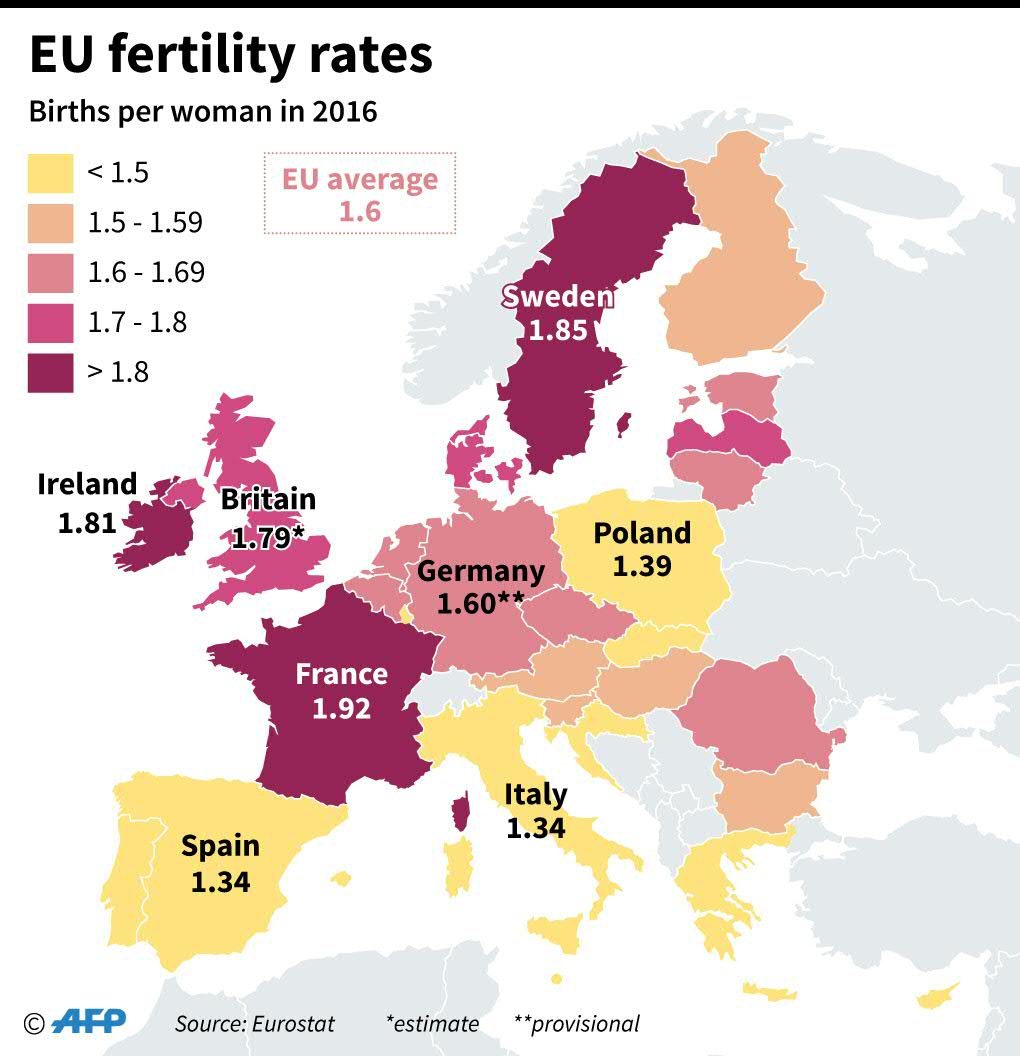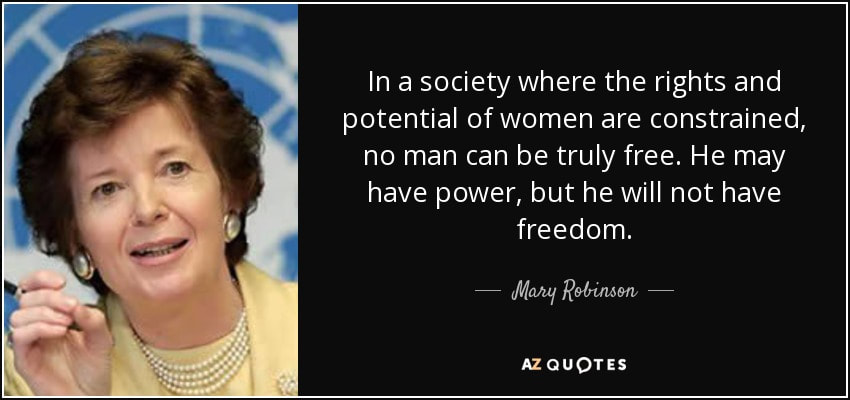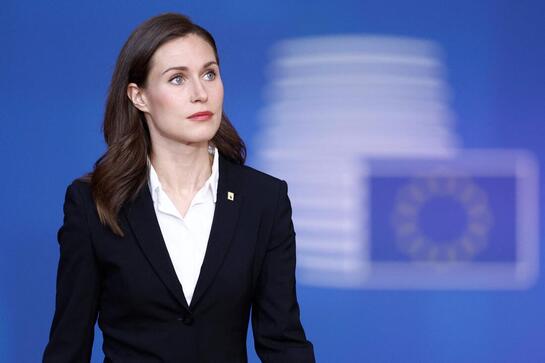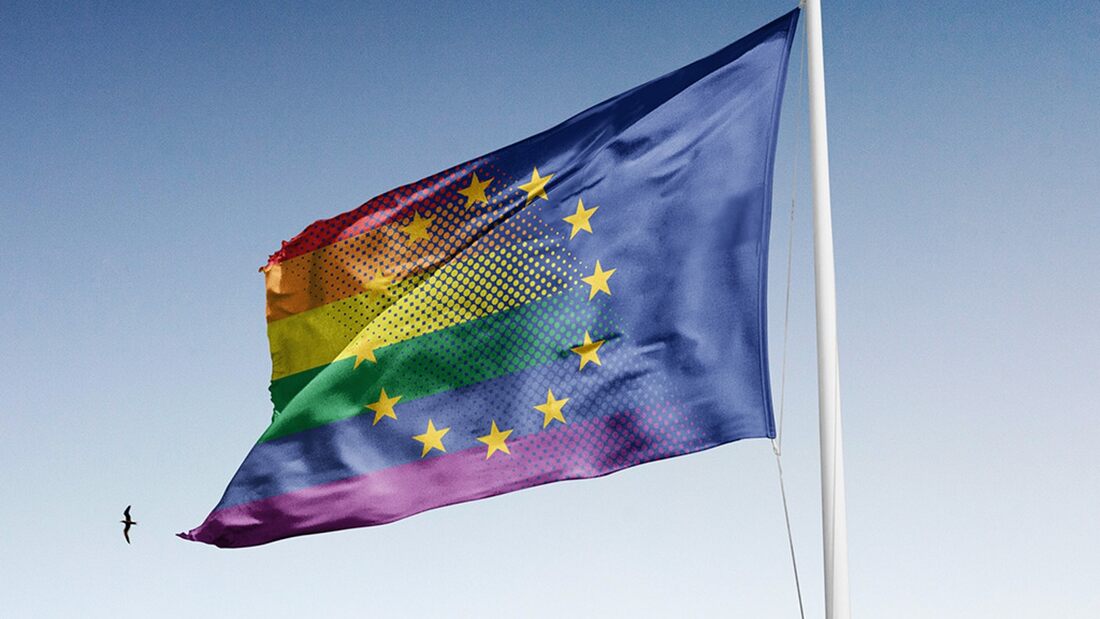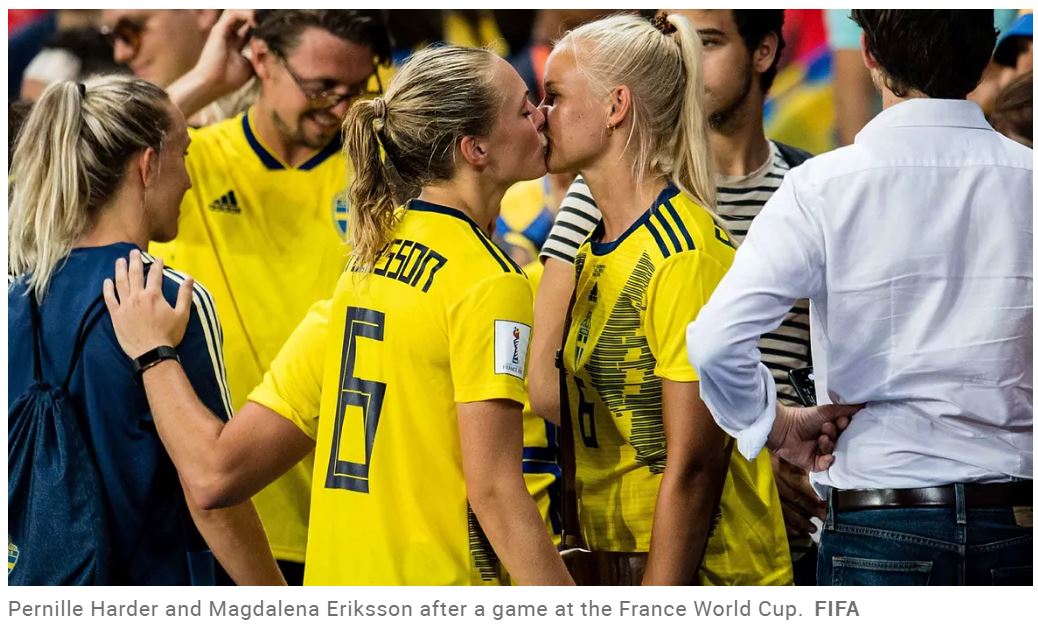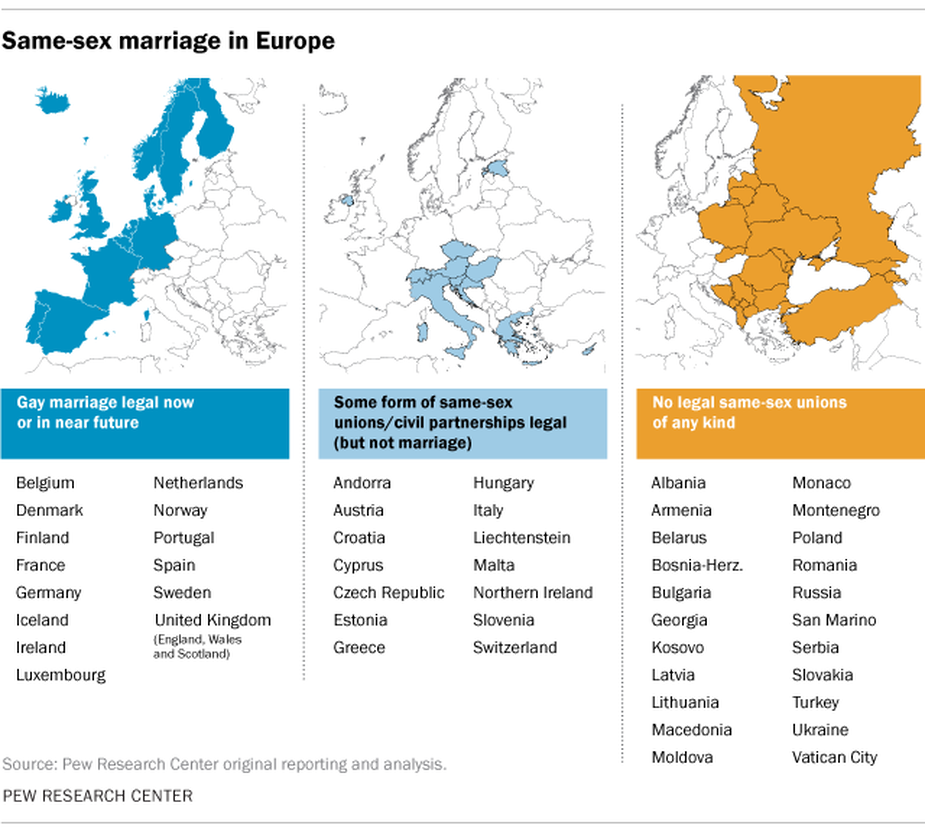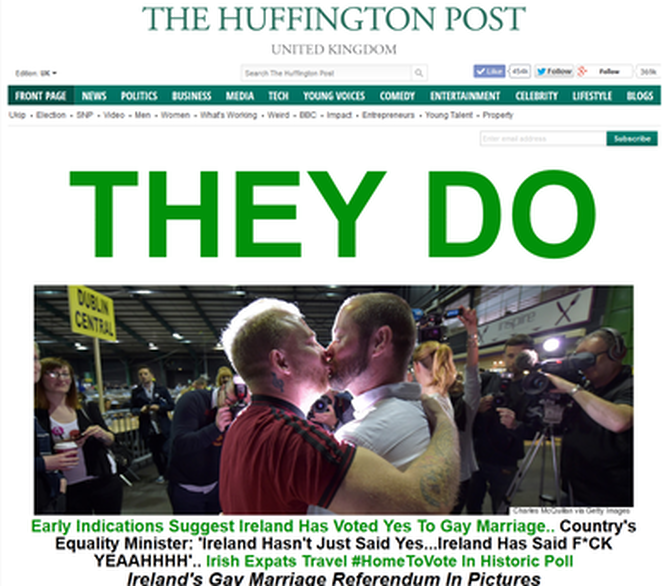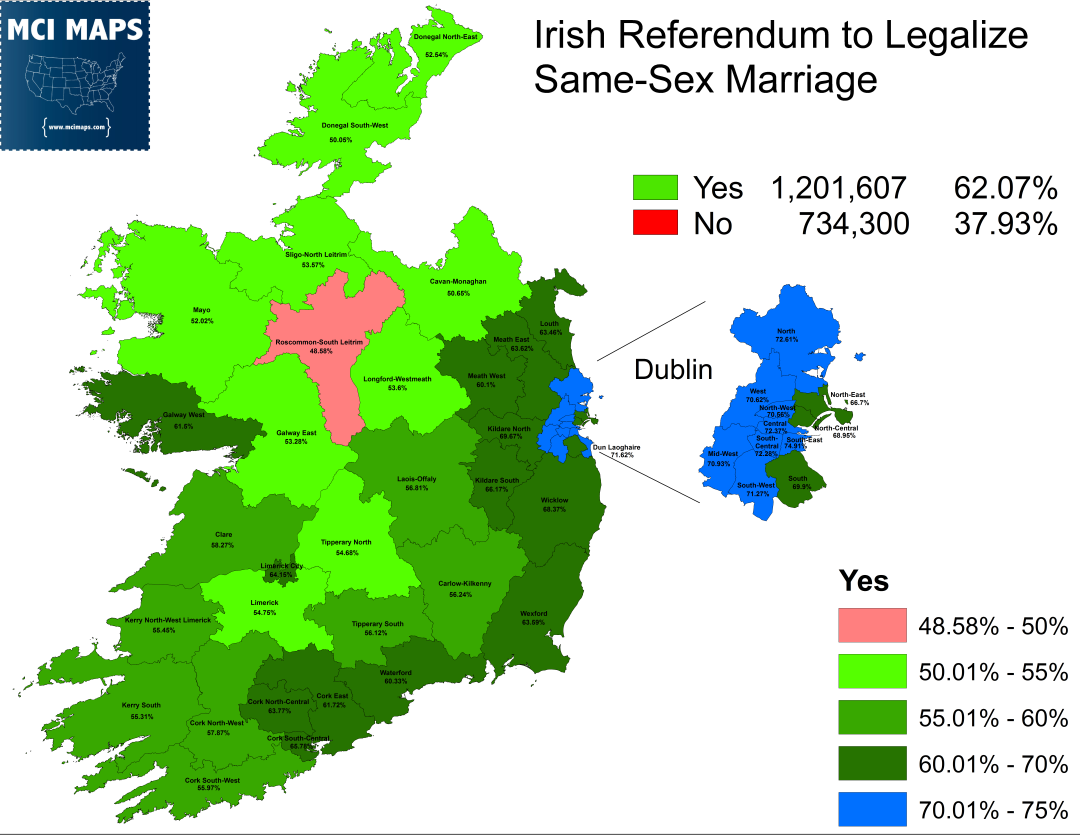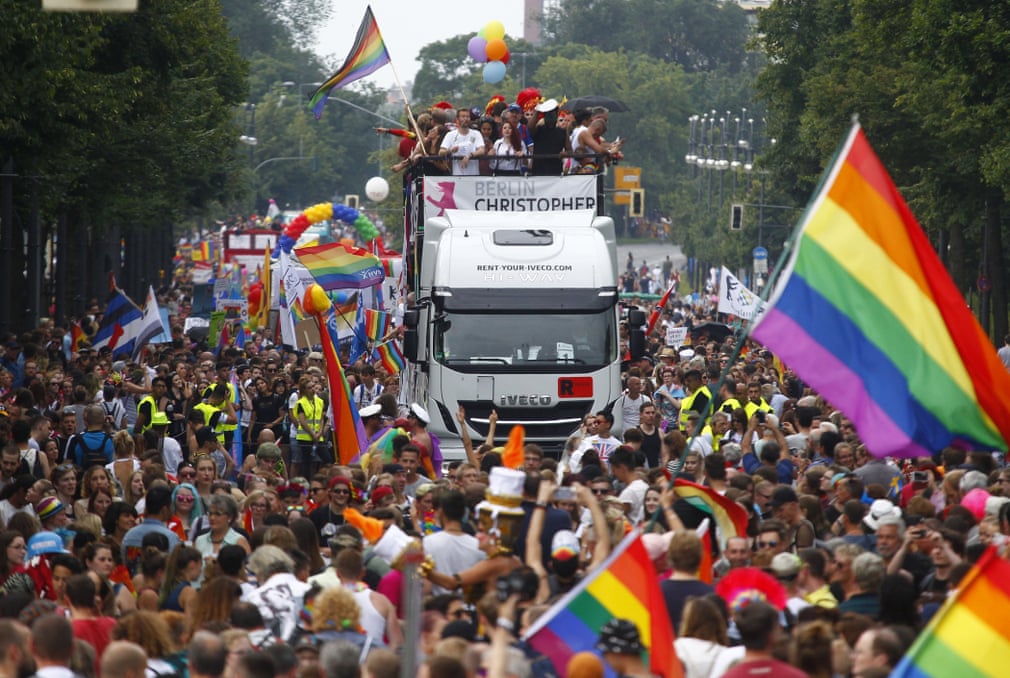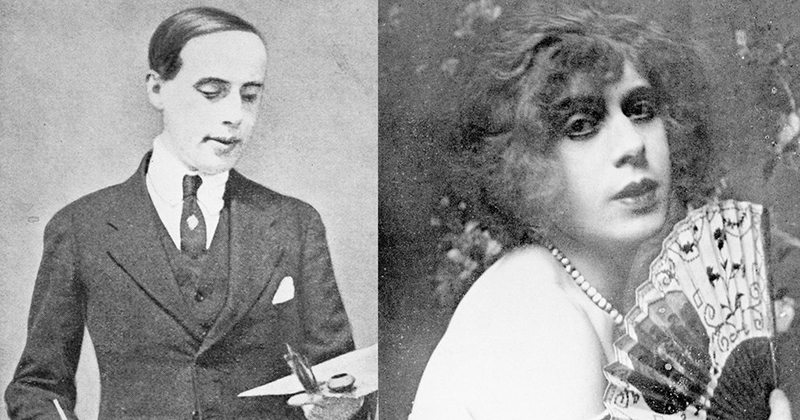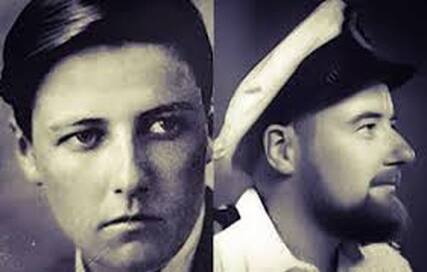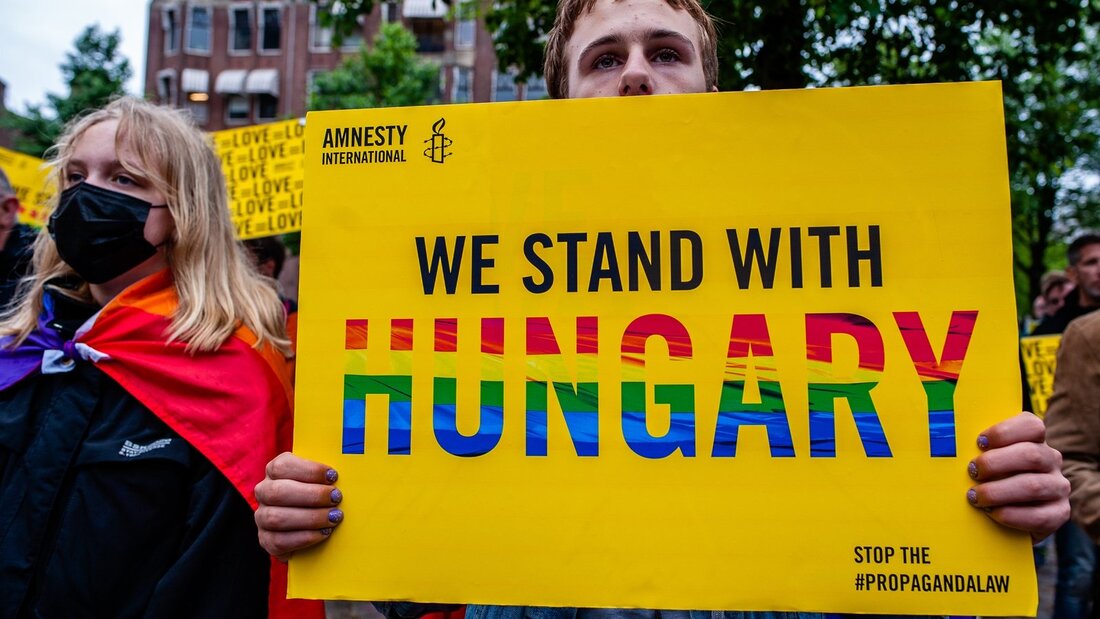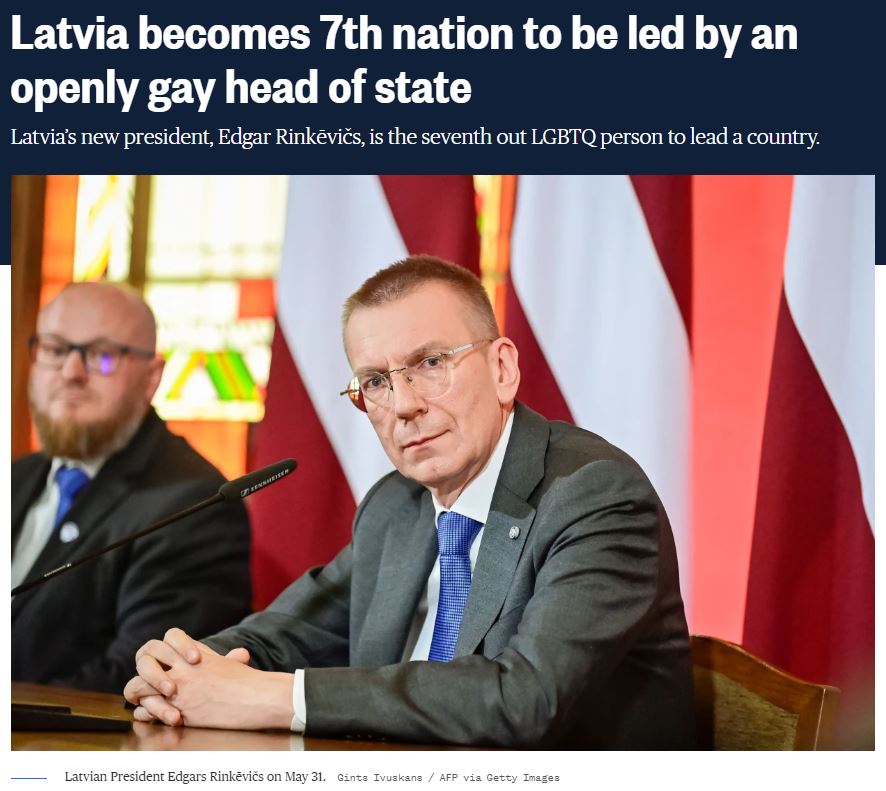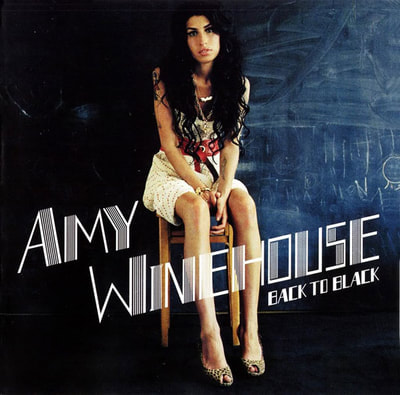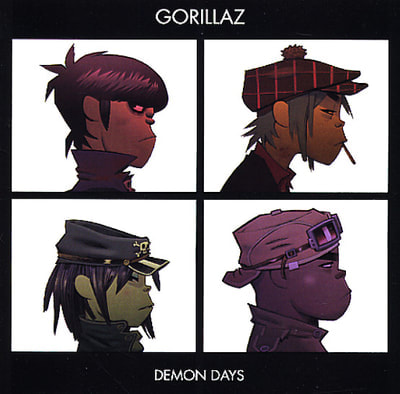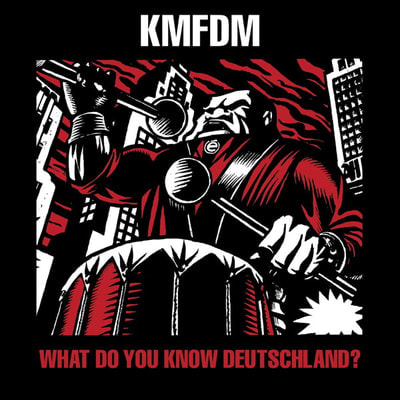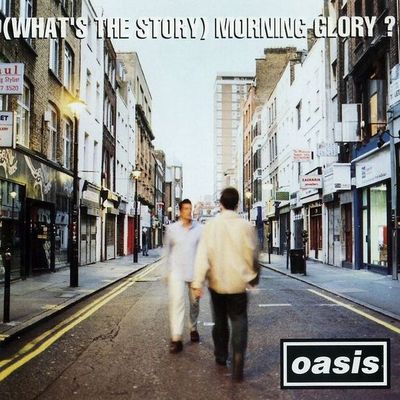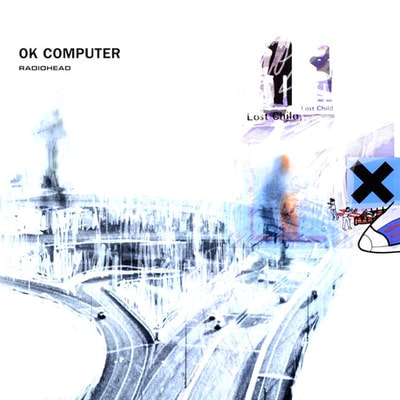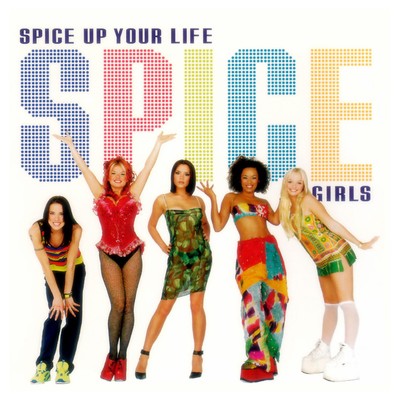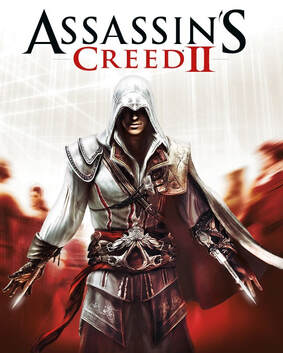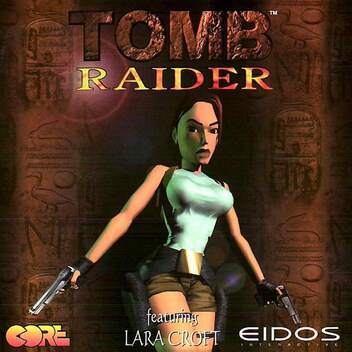The success of the Common Market inspired Europeans to work toward a closer political and economic unity, including a European executive body and Parliament.
The European Union,
c. 1992 CE-Today
Contents
A. The EU and Russia
B. Separatists and Terrorists
C. Advanced Science and Technology
D. Civil Rights
E. Pop Culture
A. The EU and Russia
B. Separatists and Terrorists
C. Advanced Science and Technology
D. Civil Rights
E. Pop Culture
In the post–World War II period, states in both Eastern and Western Europe increased their involvement in citizens’ economic lives. In the West this came through social welfare programs and the expansion of education, while Eastern European nations were heavily regulated in planned economies directed by the Soviet Union.
The Cold War promoted political and economic unity in Western Europe, leading to the establishment of a succession of ever-more comprehensive organizations for economic cooperation. In 1957, six countries formed the Common Market, which soon began to expand its membership to include other European states. The success of the Common Market inspired Europeans to work toward a closer political and economic unity, including a European executive body and Parliament. The founding of the European Union in 1991 at Maastricht included the agreement to establish the euro as a common currency for qualifying member states.
With the collapse of communism and the fall of the Soviet Union in the early 1990s, the Western European democracies celebrated the triumph of their political and economic systems, and many of the former communist states sought admission into the European Union and NATO. By the late 1990s, it became evident that the transition from communism to capitalism and democracy was not as simple as it first appeared to be, with Western Europe experiencing difficulties because of economic recession and the extension of social welfare programs.
Immigration created large populations of poor and isolated minorities, which occasionally rioted because of discrimination and economic deprivation. As European governments tried to solve these problems, the apparently permanent presence of the immigrants challenged old notions of European identity.
The disruptions of two total wars, the reduction of barriers to migration within Europe because of economic integration, globalization, and the arrival of new permanent residents from outside Europe changed the everyday lives of Europeans in significant ways. For the first time, more people lived in cities than in rural communities. Economic growth—although interrupted by repeated wars and economic crises—generally increased standards of living, leisure time (despite the growing number of two-career families), educational attainment, and participation in mass cultural entertainments.
The collapse of the birth rate to below replacement levels enhanced the financial well-being of individual families even as it reduced the labor force. To support labor-force participation and encourage families, governments instituted family policies supporting child care and created large-scale guest-worker programs. Europe’s involvement in an increasingly global economy exposed its citizens to new goods, ideas, and practices. Altogether, the disruptions of war and decolonization led to new demographic patterns—a population increase followed by falling birth rates and the immigration of non-Europeans—and to uncertainties about Europeans’ cultural identity.
Even before the collapse of communism and continuing afterward, a variety of groups on both the left and right began campaigns of terror in the name of ethnic or national autonomy, or in radical opposition to free-market ideology. Other groups worked within the democratic system to achieve nationalist and xenophobic goals.
By the 1960s, the rapid industrialization of the previous century had created significant environmental problems. Environmentalists argued that the unfettered free-market economy could lead Europe to ecological disaster, and they challenged the traditional economic and political establishment with demands for sustainable development sensitive to environmental, aesthetic, and moral constraints. At the same time, a generation that had not experienced either economic depression or total war came of age and criticized existing institutions and beliefs while calling for greater political and personal freedom. These demands culminated with the 1968 youth revolts in Europe’s major cities and in challenges to institutional authority structures, especially those of universities. Feminist movements gained increased participation for women in politics, and before the end of the century, several women became heads of government or state. Women’s organizations and movements continued to advocate for other causes, such as equal pay, women’s health care issues, and increased child care subsidies.
During the second half of the century, immigrants from around the globe streamed into Europe, and by the new millennium Europeans found themselves living in multiethnic and multi-religious communities. Immigrants defied traditional expectations of integration and assimilation and expressed social values different from 20th-century Europeans. Many Europeans refused to consider the newcomers as true members of their society. In the early 21st century, Europeans continued to wrestle with issues of social justice and how to define European identity.
Source: https://apcentral.collegeboard.org/pdf/ap-european-history-course-and-exam-description.pdf
The Cold War promoted political and economic unity in Western Europe, leading to the establishment of a succession of ever-more comprehensive organizations for economic cooperation. In 1957, six countries formed the Common Market, which soon began to expand its membership to include other European states. The success of the Common Market inspired Europeans to work toward a closer political and economic unity, including a European executive body and Parliament. The founding of the European Union in 1991 at Maastricht included the agreement to establish the euro as a common currency for qualifying member states.
With the collapse of communism and the fall of the Soviet Union in the early 1990s, the Western European democracies celebrated the triumph of their political and economic systems, and many of the former communist states sought admission into the European Union and NATO. By the late 1990s, it became evident that the transition from communism to capitalism and democracy was not as simple as it first appeared to be, with Western Europe experiencing difficulties because of economic recession and the extension of social welfare programs.
Immigration created large populations of poor and isolated minorities, which occasionally rioted because of discrimination and economic deprivation. As European governments tried to solve these problems, the apparently permanent presence of the immigrants challenged old notions of European identity.
The disruptions of two total wars, the reduction of barriers to migration within Europe because of economic integration, globalization, and the arrival of new permanent residents from outside Europe changed the everyday lives of Europeans in significant ways. For the first time, more people lived in cities than in rural communities. Economic growth—although interrupted by repeated wars and economic crises—generally increased standards of living, leisure time (despite the growing number of two-career families), educational attainment, and participation in mass cultural entertainments.
The collapse of the birth rate to below replacement levels enhanced the financial well-being of individual families even as it reduced the labor force. To support labor-force participation and encourage families, governments instituted family policies supporting child care and created large-scale guest-worker programs. Europe’s involvement in an increasingly global economy exposed its citizens to new goods, ideas, and practices. Altogether, the disruptions of war and decolonization led to new demographic patterns—a population increase followed by falling birth rates and the immigration of non-Europeans—and to uncertainties about Europeans’ cultural identity.
Even before the collapse of communism and continuing afterward, a variety of groups on both the left and right began campaigns of terror in the name of ethnic or national autonomy, or in radical opposition to free-market ideology. Other groups worked within the democratic system to achieve nationalist and xenophobic goals.
By the 1960s, the rapid industrialization of the previous century had created significant environmental problems. Environmentalists argued that the unfettered free-market economy could lead Europe to ecological disaster, and they challenged the traditional economic and political establishment with demands for sustainable development sensitive to environmental, aesthetic, and moral constraints. At the same time, a generation that had not experienced either economic depression or total war came of age and criticized existing institutions and beliefs while calling for greater political and personal freedom. These demands culminated with the 1968 youth revolts in Europe’s major cities and in challenges to institutional authority structures, especially those of universities. Feminist movements gained increased participation for women in politics, and before the end of the century, several women became heads of government or state. Women’s organizations and movements continued to advocate for other causes, such as equal pay, women’s health care issues, and increased child care subsidies.
During the second half of the century, immigrants from around the globe streamed into Europe, and by the new millennium Europeans found themselves living in multiethnic and multi-religious communities. Immigrants defied traditional expectations of integration and assimilation and expressed social values different from 20th-century Europeans. Many Europeans refused to consider the newcomers as true members of their society. In the early 21st century, Europeans continued to wrestle with issues of social justice and how to define European identity.
Source: https://apcentral.collegeboard.org/pdf/ap-european-history-course-and-exam-description.pdf
The EU and Russia
Objectives:
- Explain how the formation and existence of the European Union influenced economic developments throughout the period following World War II to the present.
- Explain how the European Union affected national and European identity throughout the period following World War II to the present.
- Explain the causes and effects of changes to migration within and immigration to Europe throughout the period following World War II to the present.
Europe in the Global Age: Crash Course European History #48
The world is more connected than ever, and that has had effects in Europe. Today we'll investigate how trade, communications, and disease have changed the continent.
|
The Berlaymont Building in Brussels, Belgium is the headquarters of the European Commission, the executive branch of the European Union (EU).
|
The European Council and Council of the European Union meet in the Europa building in Brussels, Belgium.
|
European Parliament, 2014
Membership
- European states began to set aside nationalist rivalries in favor of economic and political integration, forming a series of transnational unions that grew in size and scope over the second half of the 20th century.
- As the economic alliance known as the European Coal and Steel Community, envisioned as a means to spur postwar economic recovery, developed into the European Economic Community (EEC or Common Market) and the European Union (EU), Europe experienced increasing economic and political integration and efforts to establish a shared European identity.
- EU member nations continue to balance questions of national sovereignty with the responsibilities of membership in an economic and political union.
|
Formed in the Cold War's wake in the 1992 Maastricht Treaty, falling British support for the European Union led to the 2016 Brexit referendum to leave the EU. Britain's withdrawal from the European Union was finalized on January 31, 2020.
social media meme from 2016
|
|
Article: What Happened to the European Union?
|
The Eurozone
- The expansion of cradle-to-grave social welfare programs in the aftermath of World War II, accompanied by high taxes, became a contentious domestic political issue as the budgets of European nations came under pressure.
|
Austerity measures adopted during the 2009 European Debt Crisis drew widespread protests. The recently adopted common euro currency was imperiled by sovereign debt crises in the troubled PIGS economies.
|
The COVID-19 pandemic in Europe began with Italy. When Italian hospitals were rapidly overwhelmed, Italy was the first nation to implement a near total lockdown in a country that usually receives over 62 million tourists per year. Like the rest of the world, Europe has suffered great loss of life and severe financial repercussions as a result of the pandemic.
European Identity
|
British anti-immigrant nationalist Enoch Powell gave his notorious 1968 Rivers of Blood speech during the debate over a race relations bill.
|
|
France's large Muslim population, largely descended from France's former North African colonies, has clashed with French police and with French nationalists who argue that Islamic values are contradictory to traditional French liberal and Christian values. French National Front leader Marine Le Pen won over 1/3 of the electorate in the 2017 French national election.
|
Conflicts in African and the Middle East led to a humanitarian disaster as a flood of immigrants crossed the Mediterranean into Europe during the 2015 Refugee Crisis.
Critics of the right-wing Alternative for Germany have accused the Islamophobic organization of neo-Nazism.
Russia and Soviet Successor States
The Fall of Communism: Crash Course European History #47
The aftermath of the collapse of the Soviet Union and its Warsaw Pact had a huge impact on the countries of Eastern Europe. As the former satellite states turned away from communism and Soviet influence, some of them shifted toward democracy in an orderly way, and some descended into violence and bloodshed and ethnic recrimination. In many ways, this collapse is still playing out today. In this video you'll learn how countries like Czechoslovakia, Yugoslavia, Poland, and many others moved into the post-Soviet world.
|
Vladimir Putin has overseen a Russian resurgence with military expansion in the brief Georgian War, annexation of Crimea, and involvement in the Syrian Civil War.
|
The still under construction Moscow International Business Center is home to $12 billion of newly constructed skyscrapers. However, much of the office space sits empty
|
The EU and Russia Quizlet (comprehensive)
The EU and Russia Quizlet (abridged)
|
Separatists and Terrorists
Objective: Explain the causes and effects of mass atrocities in the period following World War II to the present.
21st Century Challenges: Crash Course European History #49
The 21st century brought a whole new host of challenges to the world, and Europe was no exception. In this video you'll learn about how an increasingly connected and complex world led to some deep rifts in countries across the continent. We'll learn about financial crises that rippled across the world. We'll learn about wars and resultant migrations that sowed discord in many European nations. Increasing polarization and populism played out in movements like Brexit in the UK. While we don't know what the future holds, an understanding of the roots of conflict can help create a roadmap for the future.
Separatists
rally for Catalan independence from Spain held in Barcelona in 2012
|
National minorities have continued to fight for independent states, such as the Basque National Liberation Movement (ETA) of Spain, and the Provisional Irish Republican Army in the United Kingdom.
|
The Irish Troubles came to a negotiated end with the 1998 Good Friday Agreement, but were followed by the terrible Omagh bombing carried out by elements of the Real Irish Republican Army who were unhappy with the peace deal.
A referendum on Scottish independence from the United Kingdom failed in 2014. However, support for independence has dramatically increased following Britain's withdrawal from the European Union in 2020.
Terrorists
|
The 1972 massacre of Israeli athletes at the Munich Olympics and the 1988 bombing of Pan Am Flight 103 began the age of modern terrorism in Europe.
|
Al-Qaeda inspired bombings were carried out in Madrid and London during the early 2000s.
In 2011 Norwegian ultra-nationalist anti-immigrant right-wing terrorist Anders Breivik killed 77, mostly teenagers at a left-wing political youth retreat.
|
Paris suffered two devastating Islamic State inspired attacks in 2015. A mass shooting at the headquarters of Charlie Hebdo, a satirical magazine that had published offensive cartoons of Muhammad, was followed by terror attacks across the city that killed 130.
Article: Why did the attackers target France?
|
|
Separatists and Terrorists Quizlet (comprehensive)
Separatists and Terrorists Quizlet (abridged)
|
Advanced Science and Technology
Objective: Explain how innovation and advances in technology influenced cultural and intellectual developments in the period 1914 to the present.
Revolutions in Science and Tech: Crash Course European History #44
In the decades following World War II, life changed in many ways, and a fair number of those changes were for the better. Many of those improvements were driven by advances in science and technology, in fields like biology, communication, energy production, space exploration, and especially medicine.
The CERN nuclear research lab in Switzerland houses the Large Hadron Collider, the world's largest and most powerful particle accelerator.
|
In the 1980s and 1990s the TEN-R (Trans-European high-speed rail network) drew Europe closer together than ever before.
|
In the early 2000s, Finnish Nokia was the world's largest manufacturer of mobile phones and smartphones.
Artist’s impression of the Rosetta orbiter landing a probe on comet 67P/Churyumov–Gerasimenko.
|
|
The London Array was the world's largest offshore wind farm when it opened in 2013.
|
|
Advanced Science and Technology Quizlet (comprehensive)
Advanced Science and Technology Quizlet (abridged)
|
Civil Rights
Objectives:
- Explain how women’s roles and status developed and changed throughout the 20th and 21st centuries.
- Explain how and why European culture changed from the period following World War II to the present.
Women's Rights
|
In 1979, "Iron Lady" Margaret Thatcher became Britain's first female prime minister.
|
Angela Merkel, the German chancellor since 2005, has been described as the de facto leader of the European Union and the most powerful woman in the world.
|
|
American comedian Conan O'Brien had a long running gag about his physical similarity to Finnish President Tarja Halonen and visited her when he did his show from Finland.
Many European women are choosing not to have children. Europe today has a negative birth rate, meaning not enough children are being born for natural population replacement.
|
|
Mary Robinson was the very popular President of Ireland during the 1990s.
|
Sanna Marin was elected as Prime Minister of Finland at age 34.
|
LGBTQ Rights
Imprisonment of gay rights activists in gay concentration camps in Chechnya in 2017 drew worldwide protests.
In 2021, the Hungarian parliament passed a new anti-LGBT law by a vote of 157-1. Seventeen EU member states have condemned the law and called it a violation of the Charter of Fundamental Rights of the European Union.
|
Civil Rights Quizlet (comprehensive)
Civil Rights Quizlet (abridged)
|
Pop Culture
Objective: Explain how and why European culture changed from the period following World War II to the present.
- Mass production, new food technologies, and industrial efficiency increased disposable income and created a consumer culture in which greater domestic comforts such as electricity, indoor plumbing, plastics, and synthetic fibers became available.
- During the 20th century, the arts were defined by experimentation, self-expression, subjectivity, and the increasing influence of the United States in both elite and popular culture.
- New movements in the visual arts, architecture, and music radically shifted existing aesthetic standards, explored subconscious and subjective states, and satirized Western society and its values.
Commerce
Sports
|
European Commercial and Sports Culture Quizlet (comprehensive)
European Commercial and Sports Culture Quizlet (abridged)
|
Music
Film
Television
Video Games
Art & Architecture
- Matthew Ritchie
- Yinka Shonibare
- Pierre Huyghe
- Florian Maier-Aichen
- Katharina Grosse
- Thomas Hirschhorn
- Frank Gehry
- Dancing House
- Guggenheim Museum
- Kunsthaus Graz
- Krzywy Domek
- The Gherkin
- Berlin Holocaust Memorial
- Harpa Concert Hall
- Metropol Parasol
- Astrup Fearnley Museet
- Channel Tunnel Waterloo Terminal
- Barcelona Museum of Contemporary Art
- City of Arts and Sciences, Valencia
- Multiplex Cinema
- Black Diamond
- Waldspirale
- Jewish Museum
- ARoS Aarhus Art Museum
- Allianz Arena
- Philological Library
- Zentrum Paul Klee
- Kumu
- Oslo Opera House
- MAXXI
- City Pavilion
|
European Arts, 1990s-Today Quizlet (comprehensive)
European Arts, 1990s-Today Quizlet (abridged)
|
What History Was, Is, and Will Be: Crash Course European History #50
At the end of our journey through modern European history, we're taking an episode to look back at how the practice of history developed and what the aim and goals and purpose of history have been. We'll also take time to consider how we should approach history research and writing going forward.
